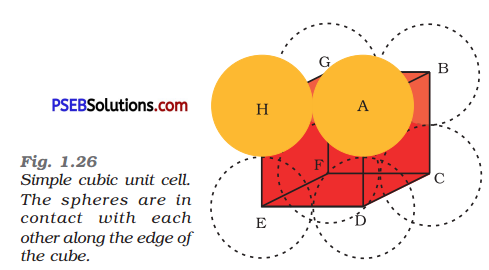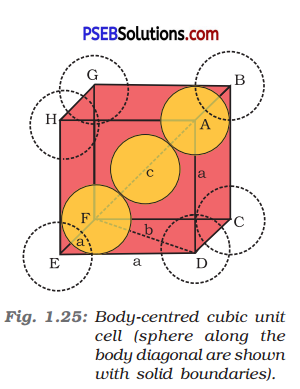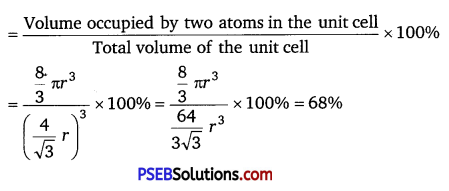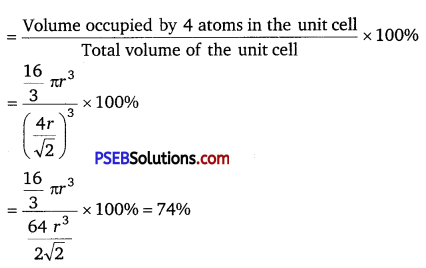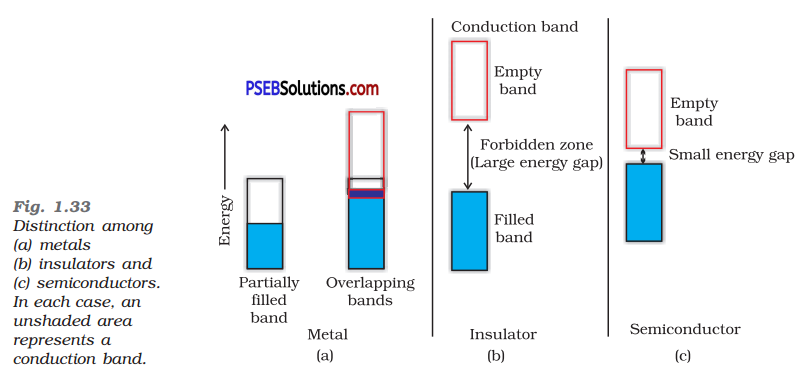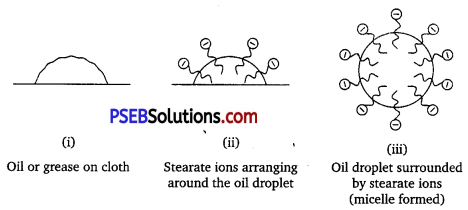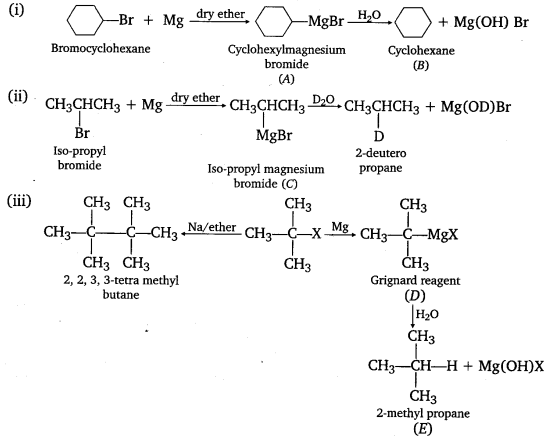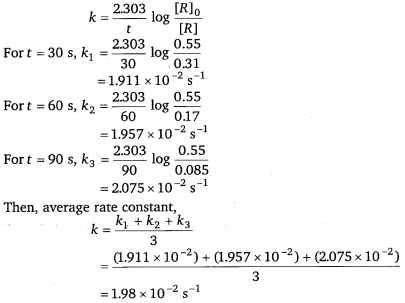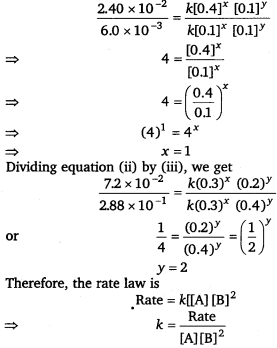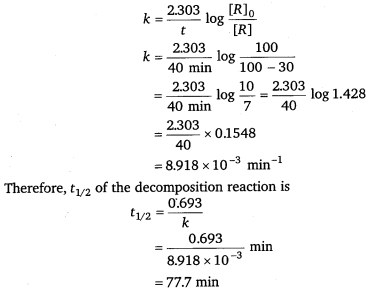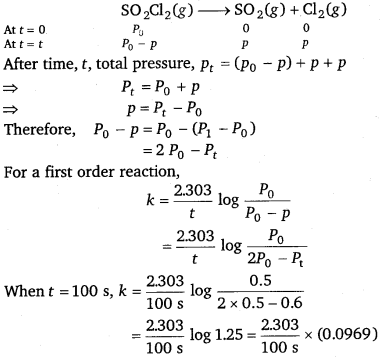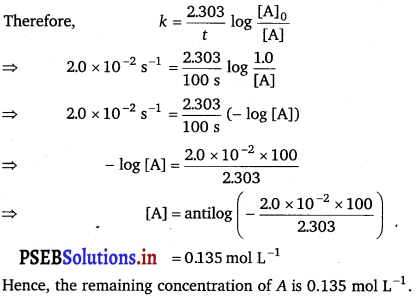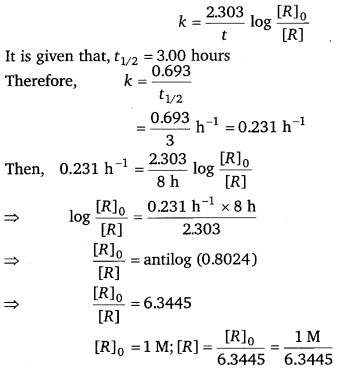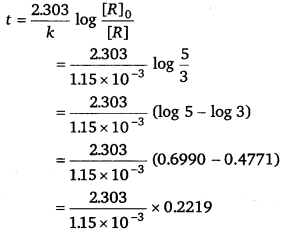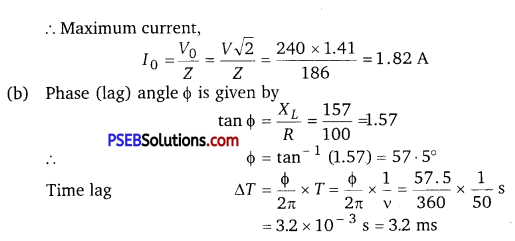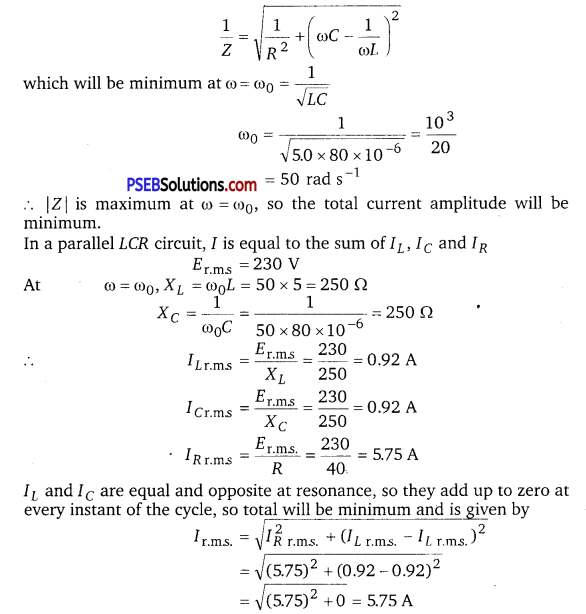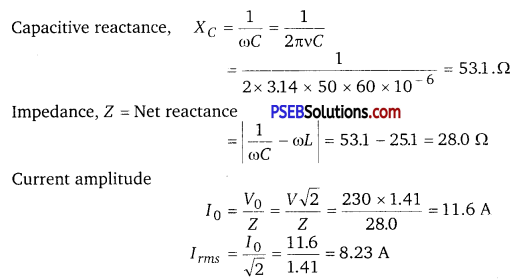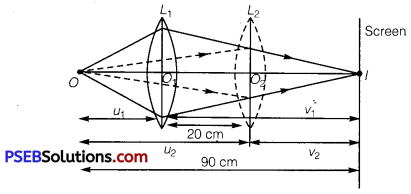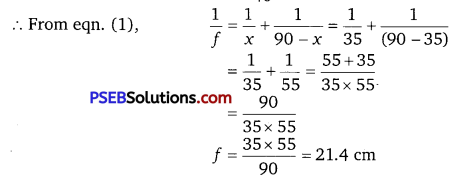Punjab State Board PSEB 12th Class Sociology Book Solutions Chapter 4 जाति असमानताएं Textbook Exercise Questions and Answers.
PSEB Solutions for Class 12 Sociology Chapter 4 जाति असमानताएं
पाठ्य-पुस्तक के प्रश्न (TEXTUAL QUESTIONS)
I. वस्तुनिष्ठ प्रश्न ।
A. बहुविकल्पीय प्रश्न
प्रश्न 1.
जाति की कौन-सी विशेषता नहीं है ?
(क) अर्जित दर्जा
(ख) पूर्वजों का व्यवसाय
(ग) अपवित्र-पवित्र भेदभाव
(घ) सजातीयता।
उत्तर-
(क) अर्जित दर्जा।
प्रश्न 2.
जाति का परम्परागत सिद्धान्त किसके विचारों पर आधारित है ?
(क) जी०एस०घूर्ये
(ख) जी०एन० मजूमदार
(ग) लुईस डयूमोंट
(घ) जे०एच०हट्टन।
उत्तर-
(ख) जी०एन०मजूमदार ।
प्रश्न 3.
किस जाति को ‘द्विज जन्मा’ नहीं कहा जाता ?
(क) ब्राह्मण
(ख) क्षत्रिय
(ग) वैश्य
(घ) शूद्र।
उत्तर-
(घ) शूद्र।
![]()
प्रश्न 4.
बोटोमोर के अनुसार, सामाजिक स्तरीकरण की कौन-सी विशेषता नहीं है :
(क) दासता
(ख) जाति
(ग) वर्ण
(घ) लिंग।
उत्तर-
(घ) लिंग।
प्रश्न 5.
कौन-सा संस्कार, जो व्यक्ति को ‘द्विज जन्मा’ बनाते हैं-
(क) जातिकर्म
(ख) जन्म-संस्कार
(ग) उपनयन संस्कार
(घ) नामकरण।
उत्तर-
(ग) उपनयन संस्कार।
प्रश्न 6.
‘अन्त्यज’ अवधारणा व्याख्या करता है-
(क) स्पृश्य-शूद्र
(ख) अस्पृश्य-शूद्र
(ग) भूमिहीन कृषक
(घ) जनजातियाँ।
उत्तर-
(ख) अस्पृश्य-शूद्र।
प्रश्न 7.
समाज का कौन-सा वर्ग ‘भेदभाव सुरक्षा नीति’ से जुड़ा है-
(क) उच्च वर्ग
(ख) मध्य वर्ग
(ग) अनुसूचित जातियाँ
(घ) प्रबल जातियाँ।
उत्तर-
(ग) अनुसूचित जातियाँ।
B. रिक्त स्थान भरें-
1. ………………… अपनी जाति पहचान की गहन समझ है।
2. जाति एक ………………. दर्जा है।
3. जाति प्रथा में ………………. एवं . ………………. विवाह होते हैं।
4. ‘द्विज जन्मा’ अवधारणा का अर्थ ………………. जन्म है।
5. व्यावसायिक सिद्धान्त ………………. विचार से सम्बन्धित है।
उत्तर-
- जाति चेतना
- प्रदत्त
- सजातीय, विजातीय
- दोबारा
- अलौकिकता की दार्शनिकता।
C. सही/ग़लत पर निशान लगाएं-
1. वर्ण व्यवस्था में, व्यक्ति की गतिशीलता की संभावना नहीं थी।
2. अस्पृश्य जाति को अंत्याज नाम से जाना जाता है।
3. जाति भारतीय समाज की प्रबल सामाजिक व्यवस्था है।
4. जाति एक सजातीय समूह है।
5. नागरिक व धार्मिक अयोग्यताएं व सुविधाएं अस्पृश्यता को बढ़ावा नहीं देती।
उत्तर-
- गलत
- सही
- सही
- सही
- गलत।
![]()
D. निम्नलिखित शब्दों का मिलान करें-
कॉलम ‘ए’ — कॉलम ‘बी’
वैश्य — अलौकिकता की दार्शनिकता पर आधारित
ब्राह्मण — जाति से बाहर विवाह
विजातीय — लाल
रक्तवर्ण — व्यापार एवं व्यवसाय
परम्परागत सिद्धांत — धार्मिक रस्मों एवं रिवाज़ों को निभाना।
उत्तर-
कॉलम ‘ए’ — कॉलम ‘बी’
वैश्य — व्यापार एवं व्यवसाय
ब्राह्मण — धार्मिक रस्मों एवं रिवाज़ों को निभाना।
विजातीय –जाति से बाहर विवाह
रक्तवर्ण — लाल
परम्परागत सिद्धांत — अलौकिकता की दार्शनिकता पर आधारित
II. अति लघु उत्तरों वाले प्रश्न
प्रश्न 1. सामाजिक श्रम विभाजन जो उपलब्धियों पर आधारित है उसे क्या कहते हैं ?
उत्तर-उसे वर्ग व्यवस्था कहते हैं।
प्रश्न 2. रक्षात्मक सेवाओं के साथ कौन संबंधित है ?
उत्तर-रक्षात्मक सेवाओं के साथ अनुसूचित जातियां संबंधित हैं।
प्रश्न 3. अपनी ही जाति/समूह में विवाह को क्या कहते हैं ?
उत्तर-अपनी ही जाति/समूह में विवाह को सजातीय विवाह कहते हैं।
प्रश्न 4. जाति व्यवस्था पदानुसार के किस मॉडल पर आधारित है ?
उत्तर-वर्ण व्यवस्था के मॉडल पर।
प्रश्न 5. धार्मिक-सांस्कृतिक प्रकृति का दूसरा जन्म किस संस्कार पर आधारित है ?
उत्तर-उपनयन संस्कार पर।
प्रश्न 6. वर्ण क्या है ?
उत्तर-वर्ण एक ऐसा समूह है जो पेशे पर आधारित होता है अर्थात् एक ही पेशे को करने वाले लोग एक ही वर्ण के होते हैं।
प्रश्न 7. ‘शुद्धता-अशुद्धता सिद्धान्त’ से आपका क्या अभिप्राय है ?
उत्तर-जाति व्यवस्था में प्रथम तीन जातियों-ब्राह्मण, क्षत्रिय तथा वैश्य को शुद्ध समझा जाता था तथा निम्न जातियों को अशुद्ध समझा जाता था।
प्रश्न 8. जाति का उद्भव जिस अवधारणा से हुआ है उसे पहचानो।
उत्तर-शब्द जाति अंग्रेज़ी भाषा के शब्द Caste का हिंदी रूपांतरण है जो पुर्तगाली भाषा के शब्द CASTA से उत्पन्न हुआ है।
प्रश्न 9. किस वर्ण को जाति से बाहर समझा जाता है उसका नाम बताएं ?
उत्तर-निम्न जाति वर्ण को जाति से बाहर समझा जाता था।
प्रश्न 10. पदानुसार व्यवस्था के वर्ण मॉडल का उल्लेख करें।
उत्तर-वर्ण व्यवस्था में चार वर्ण मिलते थे-ब्राह्मण, क्षत्रिय, वैश्य तथा निम्न जातियां ।
III. लघु उत्तरों वाले प्रश्न-
प्रश्न 1.
जाति व्यवस्था क्या है ?
उत्तर-
रिज़ले के अनुसार, “जाति परिवारों या परिवारों के समूहों का एक संकलन है जिसका सामान्य नाम होता है, जो एक काल्पनिक पूर्वज-मानव या देवता से सामान्य उत्पत्ति का दावा करता है। यह एक ही परम्परात्मक व्यवसाय करने पर बल देता है और एक सजातीय समुदाय के रूप में उनके द्वारा मान्य होता है जो अपना ऐसा मत व्यक्त करने के योग्य है।”
प्रश्न 2.
आरोपित दर्जा क्या है ?
उत्तर-
वह दर्जा जो व्यक्ति को बिना किसी परिश्रम के केवल अपने परिवार, आयु, जाति के आधार पर प्राप्त होता है, उसे आरोपित दर्जा कहते हैं। जाति व्यवस्था में प्रथम तीन जातियों को उच्च स्थिति प्राप्त होती थी तथा निम्न जाति को निम्न स्थिति प्राप्त होती थी।
प्रश्न 3.
परम्परागत रूप से वर्गों से जुड़े व्यवसाय का उल्लेख करें।
उत्तर-
- ब्राह्मण वर्ण-पढ़ना, पढ़ाना तथा धार्मिक कार्य पूर्ण करना।
- क्षत्रिय वर्ण-लड़ना, राज्य करना तथा शासन प्रबन्ध संभालना।
- वैश्य वर्ण-व्यापार करना व कृषि करना।
- निम्न वर्ण-प्रथम तीन वर्गों की सेवा करना।
प्रश्न 4.
जाति गतिशीलता क्या है ?
उत्तर-
जाति गतिशीलता का अर्थ है अपनी जाति को छोड़कर दूसरी जाति को अपना लेना। चाहे परम्परागत रूप में यह संभव नहीं है परन्तु आधुनिक समय में संस्कृतिकरण, पश्चिमीकरण जैसी प्रक्रियाओं के कारण निम्न जातियों के लोग उच्च जातियों के ढंगों को अपना कर जाति गतिशीलता बढ़ा रहे हैं।
![]()
IV. दीर्घ उत्तरों वाले प्रश्न
प्रश्न 1.
जी०एस० घूर्ये द्वारा जाति की दी गई विशेषताओं का वर्णन करें।
उत्तर-
घूर्ये ने जाति व्यवस्था की छः विशेषताएं दी हैं जिनका वर्णन इस प्रकार है-
- समाज का खण्डात्मक विभाजन।
- पदानुसार विभाजन।
- भोजन व सामाजिक व्यवहार पर नियंत्रण।
- नागरिक व धार्मिक अयोग्यताएँ एवं सुविधाएँ।
- व्यवसाय के अनियंत्रित अवसरों का अभाव।
- विवाह पर नियंत्रण।
प्रश्न 2.
‘जाति के उद्भव’ का परम्परागत सिद्धान्त क्या है ?
अथवा
जाति के उद्भव का परम्परागत सिद्धान्त लिखो।
उत्तर-
जाति के उद्भव का परम्परागत सिद्धान्त धार्मिक ग्रन्थों में जाति की उत्पत्ति के उल्लखों पर आधारित है। ऋग्वेद के पुरुषसूक्त श्लोक के अनुसार ब्रह्मा के मुँह से ब्राह्मण वर्ण, बाजुओं से क्षत्रिय वर्ण, जांघों से वैश्य वर्ण व पैरों से निम्न वर्ण उत्पन्न हुए। महाभारत के शान्तिपर्व तथा मनुस्मृति में भी ऐसा ही बताया गया है। इस प्रकार वर्णों की उत्पत्ति ब्रह्मा से हुई मानी गई है।
इसके आलोचक यह तर्क देते हैं कि वर्ण तथा जाति दो अलग-अलग धारणाएं हैं। वर्ण कर्म पर आधारित होता है जबकि जाति का आधार जन्म है। वास्तव में वर्ण जाति प्रथा का मुख्य आधार है जिसने उद्विकासीय क्रम में जाति का रूप ले लिया था।
प्रश्न 3.
जाति के उद्भव का व्यावसायिक सिद्धान्त क्या है ?
अथवा
जाति के उद्भव के व्यावसायिक सिद्धान्त पर प्रकाश डालिए।
उत्तर-
नेसफील्ड ने जाति की उत्पत्ति का व्यावसायिक सिद्धान्त दिया था। उसके अनुसार केवल व्यवसाय ही जाति की उत्पत्ति के लिए उत्तरदायी है। सभी पेशे एक समान नहीं होते। जिन लोगों ने उच्च पेशा अपना लिया उनकी स्थिति ऊँची हो गई तथा निम्न पेशा अपनाने वाले व्यक्तियों की स्थिति निम्न हो गई।
इसके विरोध में आलोचक यह तर्क देते हैं कि इस सिद्धान्त में जाति के धार्मिक तत्त्वों की उपेक्षा की गई है। भारत में वर्तमान समय में 2/3 जनसंख्या कृषि से जुड़ी है। अगर व्यवसाय को आधार माना जाए तो कृषि से जुड़ी जनता की जाति एक ही होगी।
प्रश्न 4.
जाति की गतिशीलता को दिखलाने वाले तत्त्वों का वर्णन करें।
उत्तर-
- समाज सुधार आंदोलनों ने जाति व्यवस्था में काफ़ी परिवर्तन ला दिया।
- भारत सरकार के प्रयासों तथा कानूनों के बनने के कारण भी जाति व्यवस्था परिवर्तित हो रही है।
- अंग्रेजों ने भारत में कई प्रक्रियाएं शुरू की जिससे जाति व्यवस्था में गतिशीलता आई।
- उद्योगों के प्रसार के कारण सभी जातियों के लोग इकट्ठे मिल कर कार्य करने लग गए जिस कारण जाति प्रथा के बंधन कमजोर हो गए।
- आधुनिक शिक्षा के प्रसार ने भी जाति व्यवस्था की गतिशीलता में सहायता की। (vi) यातायात तथा संचार साधनों के विकास के कारण भी जाति व्यवस्था कमजोर हो गई।
V. अति दीर्घ उत्तरों वाले प्रश्न
प्रश्न 1.
आप जाति से क्या समझते हैं ? जाति व वर्ण के पारस्परिक अन्तर को स्पष्ट करें।
अथवा जाति से आपका क्या अभिप्राय है ?
अथवा
जाति से आपका क्या अभिप्राय है ? जाति और वर्ण के मध्य अन्तर को बताइए।
अथवा
सामाजिक स्तरीकरण के रूप में जाति की व्याख्या कीजिए।
अथवा
जाति को परिभाषित कीजिए।
अथवा
जाति व्यवस्था की सामाजिक स्तरीकरण के रूप में व्याख्या कीजिए।
अथवा
जाति से आपका क्या अभिप्राय है? जाति तथा वर्ण के मध्य अन्तर की व्याख्या कीजिए।
उत्तर-
वैसे तो प्राचीन समय से भारतीय समाज में बहुत सी संस्थाएं नई आ रही हैं, परन्तु जाति व्यवस्था उन सभी में से सबसे महत्त्वपूर्ण संस्था है जिसने न केवल भारतीय समाज को विघटित होने से बचाया बल्कि इसने भारतीय समाज को एक सूत्र में भी बाँध कर रखा। जाति व्यवस्था में प्रत्येक व्यक्ति की भूमिका तथा स्थिति उसकी जाति के अनुसार निश्चित हो जाती थी। यह माना जाता है कि प्राचीन समय में मौजूद वर्ण व्यवस्था में से ही जाति व्यवस्था की उत्पत्ति हुई। वर्ण व्यवस्था में प्रत्येक व्यक्ति का कार्य निश्चित होता था तथा सम्पूर्ण समाज चार भागों में विभाजित था। धीरेधीरे वर्ण व्यवस्था में कठोरता आ गई तथा इसने जाति व्यवस्था का रूप ले लिया। व्यक्ति की स्थिति तथा भूमिका उसकी जाति के अनुसार निश्चित हो गई तथा सामाजिक व्यवस्था ठीक ढंग से चलने लगी।
शब्द जाति अंग्रेजी भाषा के शब्द Caste का हिन्दी रूपांतर है। शब्द Caste पुर्तगाली भाषा के शब्द Casta में से निकला है जिसका अर्थ नस्ल अथवा प्रजाति है। शब्द Caste लातीनी भाषा के शब्द Castus से भी सम्बन्धित है जिसका अर्थ शुद्ध नस्ल है। प्राचीन समय में चली आ रही जाति व्यवस्था जन्म पर आधारित होती थी तथा व्यक्ति जिस जाति में पैदा होता था वह उसे तमाम आयु परिवर्तित नहीं कर सकता था। प्राचीन समय में तो व्यक्ति के जन्म से ही उसका कार्य, उसकी सामाजिक स्थिति निश्चित हो जाते थे क्योंकि उसे अपनी जाति का परंपरागत पेशा अपनाना पड़ता था तथा उसकी जाति की सामाजिक स्थिति के अनुसार ही उसकी सामाजिक स्थिति निश्चित हो जाती थी। जाति व्यवस्था अपने सदस्यों के जीवन पर बहुत-सी पाबन्दियां लगाती थीं तथा प्रत्येक व्यक्ति के लिए इन पाबन्दियों को मानना आवश्यक होता था। __इस प्रकार जाति व्यवस्था एक ऐसी व्यवस्था थी जिसमें व्यक्ति के ऊपर जाति के नियमों के अनुसार कई पाबंदियां थीं। जाति एक अन्तर्वैवाहिक समूह होता है जो अपने सदस्यों के जीवन सम्बन्धों, पेशे इत्यादि के ऊपर कई प्रकार के प्रतिबंध रखता है। यह व्यवस्था भारतीय समाज के महत्त्वपूर्ण आधारों में से एक थी तथा यह इतनी शक्तिशाली थी कि कोई भी व्यक्ति इसके विरुद्ध कार्य करने का साहस नहीं करता था।
परिभाषाएं (Definitions): जाति व्यवस्था की कुछ परिभाषाएं प्रमुख समाजशास्त्रियों तथा मानव वैज्ञानिकों द्वारा दी गई हैं जिनका वर्णन इस प्रकार है
- राबर्ट बीयरस्टेड (Robert Bierstdt) के अनुसार, “जब वर्ग व्यवस्था की संरचना एक अथवा अधिक विषयों पर पूर्णतया बंद होती है तो उसे जाति व्यवस्था कहते हैं।”
- रिज़ले (Rislay) के अनुसार, “जाति परिवारों अथवा परिवारों के समूह का संकलन है जिसका एक समान नाम होता है तथा जो काल्पनिक पूर्वज-मनुष्य अथवा दैवीय के वंशज होने का दावा करते हैं, जो समान पैतृक कार्य अपनाते हैं तथा वह विचारक जो इस विषय पर राय देने योग्य हैं, इसे समजातीय समूह मानते हैं।”
- ब्लंट (Blunt) के अनुसार, “जाति एक अन्तर्वैवाहिक समूह अथवा अन्तर्वैवाहिक समूहों का एकत्र है जिसका एक नाम है, जिसकी सदस्यता वंशानुगत है, जो अपने सदस्यों पर सामाजिक सहवास के सम्बन्ध में कुछ प्रतिबन्ध लगाती है, एक आम परम्परागत पेशे को अपनाती है अथवा एक आम उत्पत्ति की दावा करती है तथा साधारणतया एक समरूप समुदाय को बनाने वाली समझी जाती है।”
- मार्टिनडेल तथा मोना चेसी (Martindale and Mona Chesi) के अनुसार, “जाति व्यक्तियों का एक ऐसा समूह है जिसमें किसी व्यक्ति के कर्त्तव्य तथा विशेषाधिकार जन्म से ही निश्चित होते हैं, जिसे संस्कारों तथा धर्म की तरफ से मान्यता तथा स्वीकृति प्राप्त होती है।”
- के० एल० केतकर (K.L. Ketkar) के अनुसार, “जाति एक सामाजिक समूह है जिसकी दो विशेषताएं हैं (a) सदस्यता उन व्यक्तियों तक सीमित होती है तथा जो उस जाति में जन्म लेने वाले व्यक्ति उस जाति में शामिल होते हैं (b) सदस्य एक सामाजिक नियम द्वारा समूह से बाहर विवाह करने से रोके जाते हैं।”
- कूले (Cooley) के अनुसार, “जब श्रेणी लगभग निश्चित रूप से पैतृक होती है तो हम उसे जाति कहते हैं।”
- मैकाइवर तथा पेज (Maclver and Page) के अनुसार, “जब स्थिति पूर्णतया पूर्वनिश्चित होती है, मनुष्य बिना किसी उम्मीद को लेकर पैदा होते हैं तो वर्ग जाति का रूप ले लेता है।”
वर्ण व जाति में अंतर (Difference between Varna and Caste):
साधारणतया वर्ण तथा जाति को एक जैसे अर्थों में लिया जाता था तथा दोनों के समान अर्थ ही निकाल लिए जाते थे। साधारण व्यक्ति दोनों को एक जैसी ही चीज़ समझता है। परन्तु अगर ध्यान से देखा जाए तो दोनों ही अलग-अलग धारणाएं हैं तथा दोनों में बहुत अन्तर है। यह अन्तर इस प्रकार है-

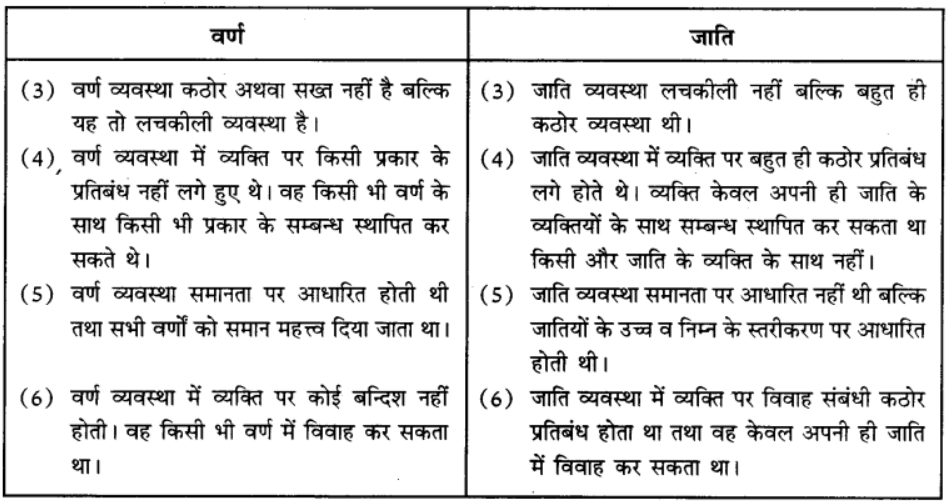
![]()
प्रश्न 2.
जाति के जन्म की परम्परागत तथा व्यावसायिक सिद्धान्त इनके उद्भव या जन्म की सम्पूर्ण तस्वीर पेश नहीं करते। विस्तार सहित लिखें।
उत्तर-
वास्तव में जाति की उत्पत्ति के केवल परम्परागत तथा व्यावसायिक सिद्धान्त ही नहीं बल्कि कई अन्य सिद्धान्त भी हैं जो इसकी उत्पत्ति के बारे में दिए जाते हैं। इस कारण ही परम्परागत तथा व्यावसायिक सिद्धान्त जाति की उत्पत्ति की सम्पूर्ण तस्वीर पेश नहीं करते। इन सभी का वर्णन इस प्रकार है
- परम्परागत सिद्धान्त।
- प्रजातीय सिद्धान्त।
- भौगोलिक सिद्धान्त।
- व्यावसायिक अथवा पेशे से सम्बन्धित सिद्धान्त।
- विकासवादी सिद्धान्त।
- धार्मिक सिद्धान्त।
- माना सिद्धान्त। अब हम इनका वर्णन विस्तार से करेंगे
1. परम्परागत सिद्धान्त (Traditional Theory) जाति व्यवस्था की उत्पत्ति के सम्बन्ध में परम्परागत सिद्धान्त हिन्दू धार्मिक ग्रंथों में दिया गया है। वैदिक साहित्य में सबसे प्राचीन व्याख्या ऋग्वेद के पुरुष सूक्त के एक मन्त्र पर आधारित है। इस मन्त्र के अनुसार चार वर्णों की उत्पत्ति ब्रह्मा के अलग-अलग अंगों से हुई थी। ब्राह्मण, ब्रह्मा के मुख से, क्षत्रिय ब्रह्मा की बाजुओं से, वैश्य जांघों से तथा चौथा वर्ण पैरों से उत्पन्न हुआ था। मनु ने भी मनुस्मृति में इसकी व्याख्या करते हुए चारों वर्गों के कार्य दिए थे। ब्रह्मा के मुख से उत्पन्न होने के कारण ब्राह्मण शिक्षा देगा, क्षत्रिय बाजुओं से उत्पन्न हुए हैं इसलिए वह हथियारों का प्रयोग करके अन्य लोगों की रक्षा करेगा, वैश्य कृषि, व्यापार पशुपालन का कार्य करेगा तथा क्योंकि चौथा वर्ण पैरों से उत्पन्न हुआ था इसलिए वह ऊपर जाने वाले तीन वर्गों की सेवा करेगा। __ महाभारत में भी यह बताया गया है कि अलग-अलग जातियां तथा उपजातियां कैसे उत्पन्न हुईं। वैदिक काल में अनुलोम विवाह होते थे, परन्तु प्रतिलोम विवाह नहीं। क्योंकि प्रतिलोम विवाह को मान्यता प्राप्त नहीं थी इसलिए इस विवाह से पैदा हुए बच्चे को माता-पिता का वर्ण नहीं मिलता था। उन्हें हिन्दू समाज से अलग कर दिया गया तथा आगे चल कर यह निम्न जातियां तथा उपजातियां बन गईं।
परन्तु परम्परागत सिद्धान्त की आलोचना होती है क्योंकि इस सिद्धान्त में वर्ण व्यवस्था का वर्णन मिलता है न कि जाति व्यवस्था का। समाजशास्त्रियों के अनुसार वर्ण तथा जाति अलग-अलग है। वह यह भी नहीं मानते कि सभी जातियां तथा उपजातियां अनुलोम तथा प्रतिलोम विवाह के कारण उत्पन्न हुई होंगी। कई विद्वान् मनु की आलोचना करते हैं कि जातियों का विभाजन वर्ण व्यवस्था के कारण उत्पन्न नहीं हुआ। अगर इस तरह होता तो उपजातियों की संख्या मुख्य जातियों की तुलना में कम होती, परन्तु स्थिति इसके विपरीत होती है।
2. प्रजातीय सिद्धान्त (Racial Theory)-बहुत-से विद्वानों ने जाति व्यवस्था की उत्पत्ति के लिए प्रजातीय सिद्धान्त दिया है। रिज़ले, मैकाइवर, मैक्स वैबर, क्रोबर, इत्यादि के अनुसार जाति प्रथा के उत्पन्न होने में प्रजातीय तत्त्व महत्त्वपूर्ण है। घूर्ये, मजूमदार, दत्त इत्यादि भी इसे महत्त्वपूर्ण मानते हैं। रिज़ले के अनुसार जाति प्रथा की उत्पत्ति के लिए तीन कारक उत्तरदायी हैं। (i) प्रजातीय मेल-जोल (ii) मेल-जोल से उत्पन्न अन्तरी मिश्रण तथा (ii) वर्ग भेद की भावना।
भारत में जाति व्यवस्था का आरम्भ इण्डो आर्य लोगों के आने के बाद शुरू हुई। इस प्रजाति का समाज चार भागों में विभाजित था तथा भारत आने के पश्चात् इन्होंने यह सिद्धान्त यहां पर भी लागू किया। आर्य लोगों ने भारत के मूल निवासियों को हरा कर उनके साथ एक पक्षीय वैवाहिक सम्बन्ध स्थापित किए क्योंकि आर्य लोगों के पास स्त्रियां कम थीं। यहां अनुलोम विवाह की प्रथा शुरू हुई। आर्य लोगों ने अपनी लड़कियों के विवाह भारतीय लोगों से न किए जिस कारण प्रतिलोम विवाह को मान्यता न मिली। जब आर्य लोगों की आवश्यकताएं पूर्ण हो गईं तो उन्होंने अनुलोम विवाह बन्द कर दिए। अनुलोम विवाह के कारण प्रजातीय मिश्रण बढ़ गया तथा अलग-अलग जातियां अस्तित्व में आ गईं।
घूर्ये के अनुसार आर्य लोगों ने जीत प्राप्त करने के बाद अपने आपको भारत के मूल निवासियों से ऊँचा दर्जा दिया। उन्होंने अपने आपको ऊपर वाले तीन वर्षों में रखा तथा मूल निवासियों को दासों का दर्जा दिया। उन्होंने अपनी प्रजातीय शुद्धता कायम रखने के लिए मूल निवासियों से अलग रहने की नीति अपनाई। समय बीतने के साथ-साथ समाज उच्च तथा निम्न दर्जे के समूहों में विभाजित हो गया। इस कारण घुर्ये के अनुसार जाति प्रथा इण्डो आर्यन संस्कृति में ब्राह्मणों की देन है।
मजूमदार के अनुसार संस्कृति के संघर्ष तथा प्रजातीय मेल-जोल ने भारत में उच्च की तथा निम्न दर्जे के समूहों की रचना की। प्रजातीय मिश्रण कई कारणों की वजह से था जैसे आर्य लोगों में स्त्रियों कमी, उन्नत द्राविड़ संस्कृति, उनकी मातृ प्रधान व्यवस्था, देवी-देवताओं की पूजा, एक स्थान पर जीवन व्यतीत करने की इच्छा, अलग-अलग रीति-रिवाज इत्यादि। आर्य लोगों की द्राविड़ लोगों के ऊपर जीत के पश्चात् उनका आपस में मेलजोल तथा सांस्कृतिक संघर्ष चलता रहा। इस कारण कई सामाजिक समूहों का निर्माण हुआ जो अन्तर्वैवाहिक बन गए। यहां प्रत्येक समूह अथवा जाति का दर्जा उस समूह के रक्त की शुद्धता तथा दूसरे समूहों से अलग रहने के आधार पर निर्धारित हो गए।
प्रजातीय सिद्धान्त की आलोचना होती है क्योंकि इस सिद्धान्त ने वैवाहिक सम्बन्धों पर रोक के बारे में तो बताया है, परन्तु खाने-पीने के नियमों का कोई जिक्र नहीं किया है। मुसलमान तथा ईसाई सांस्कृतिक भिन्नता होने के कारण जाति का रूप धारण नहीं कर सके तथा जाति प्रथा की उत्पत्ति कई कारणों की वजह से हुई है। केवल एक ही कारण को इसकी उत्पत्ति का कारण नहीं माना जा सकता।
3. भौगोलिक सिद्धान्त (Geographical Theory)-जाति प्रथा की उत्पत्ति के सम्बन्ध में भौगोलिक सिद्धान्त गिलबर्ट (Gilbert) ने दिया है। उसके अनुसार जातियों का निर्माण अलग-अलग समूहों के देश के अलग-अलग भागों में बसने के कारण हुआ है। यह विचार तमिल साहित्य में दिया गया है। इस विचार की पुष्टि कई उदाहरणों से होती है। जैसे सरस्वती नदी के किनारे रहने वाले ब्राह्मणों को सारस्वत ब्रह्मण कहा जाने लगा तथा कन्नौज में रहने वालों को कन्नौजिया कहा जाने लगा। इस प्रकार कई अन्य जातियों के नाम भी उनके निवास स्थान के आधार पर पड़ गए। परन्तु इस सिद्धान्त को अधिकतर विद्वानों ने नकार दिया है क्योंकि किसी भी भौगोलिक क्षेत्र में कई जातियां मिलती हैं, परन्तु उन सभी के नाम उस क्षेत्र से सम्बन्धित नहीं होते।
4. व्यवसाय अथवा पेशे से सम्बन्धित सिद्धान्त (Occupational Theory)-व्यवसाय अथवा पेशे के आधार पर जाति प्रथा की उत्पत्ति का सिद्धान्त नैसफील्ड तथा डाहलमैन (Nesfield and Dahlmann) ने दिया है। नैसफील्ड के अनुसार जातियों की उत्पत्ति अलग-अलग पेशों के आधार पर हुई। उन्होंने प्रजातीय कारक को नकार दिया है। जाति प्रथा के अस्तित्व में आने से बहुत पहले ही नसली मिश्रण काफ़ी बढ़ चुका था। उसके अनुसार जाति प्रथा की उत्पत्ति धर्म के कारण भी नहीं हुई है क्योंकि धर्म वह कठोर आधार नहीं दे सकता जो जाति प्रथा के लिए आवश्यक है। इस प्रकार नैसफील्ड के अनुसार व्यवसाय अथवा पेशा ही जाति प्रथा की उत्पत्ति के लिए उत्तरदायी है।
डाहलमैन के अनुसार शुरू में भारतीय समाज तीन भागों में बंटा हुआ था-पुरोहित, शासक तथा बुर्जुआ। इन तीनों वर्गों के पेशे धार्मिक, राजनीतिक तथा आर्थिक क्रियाओं से सम्बन्धित थे। इनके समूह पेशे तथा रिश्तों के आधार पर छोटे-छोटे समूहों में विभाजित हो गए। जो समूह पहले व्यावसायिक निगमों के रूप में सामने आए तथा धीरे-धीरे बड़े व्यावसायिक संघों का रूप धारण कर गए, आगे चल कर यह संघ जाति के रूप में विकसित हो गए।
इस सिद्धान्त की भी आलोचना हुई है। जाति प्रथा का धर्म से सीधा सम्बन्ध न बताना ठीक नहीं है। यह सिद्धान्त प्रजातीय कारकों को भी दूर करता है जोकि ठीक नहीं है क्योंकि उच्च तथा निम्न सामाजिक समूहों में कुछ न कुछ प्रजातीय अन्तर अवश्य होता है। इसके साथ ही अगर जाति प्रथा की उत्पत्ति व्यावसायिक संघों के कारण हुई है तो यह केवल भारत में ही क्यों सामने आई यूरोप के देशों में क्यों नहीं। इस प्रकार इस सिद्धान्त में इन बहुत-से प्रश्नों का उत्तर नहीं है।
5. विकासवादी सिद्धान्त (Evolutionary Theory) यह सिद्धान्त डैनज़िल इबैटस्न (Denzil Ibbetson) ने दिया था। उसके अनुसार जाति प्रथा की उत्पत्ति चार वर्णों के आधार पर नहीं हुई बल्कि यह तो आर्थिक आधार पर बने संघों द्वारा हुई है। उसके अनुसार पहले लोग खानाबदोशों की तरह रहते थे तथा जाति प्रथा अस्तित्व में नहीं आई थी। लोगों में आपस में रक्त सम्बन्ध होते थे तथा उच्च निम्न की भावना नहीं थी। परन्तु धीरे-धीरे इकट्ठे रहने से आर्थिक विकास शुरू हुआ तथा लोग कृषि व अन्य कार्य करने लग गए। समय के साथ-साथ आर्थिक जीवन जटिल हो गया तथा श्रम विभाजन की आवश्यकता महसूस होने लग गई। राजाओं का यह कर्त्तव्य बन गया कि वह ऐसी आर्थिक नीति का निर्माण करें जोकि श्रम विभाजन तथा पेशों की भिन्नता पर आधारित हों। इस कारण कई नए आर्थिक वर्ग अस्तित्व में आ गए। एक जैसा कार्य करने से सामुदायिक भावना का विकास हुआ। प्रत्येक संघ ने अपने पेशे सम्बन्धी रहस्यों को गुप्त रखने के लिए अन्तर्विवाह की नीति अपना ली। इस प्रकार जाति वैवाहिक होने के कारण जाति प्रथा की उत्पत्ति हुई। धीरे-धीरे इन समूहों ने सामाजिक पदक्रम में अपना स्थान बना लिया।
इस सिद्धान्त की भी आलोचना हुई है क्योंकि पेशे के आधार पर संघ तो सभी समाजों में होते थे परन्तु जाति प्रथा केवल भारत में ही विकसित क्यों हुई। आर्थिक कारक को बहुत-से कारकों में से एक कारक तो माना जा सकता है परन्तु केवल एक ही कारक नहीं माना जा सकता।
6. धार्मिक सिद्धान्त (Religious Theory)—यह सिद्धान्त होकार्ट (Hocart) तथा सेनार्ट (Senart) ने दिया था। होकार्ट के अनुसार जाति प्रथा की उत्पत्ति तथा भारतीय समाज का विभाजन धार्मिक कर्मकाण्डों के सिद्धान्तों के कारण हुई थी। प्राचीन भारतीय समाज में धर्म का बहुत महत्त्व होता था जिस कारण देवताओं को बलि भी दी जाती थी। बलि की प्रथा में पूजा-पाठ तथा मन्त्र पढ़ना शामिल था जिसमें कई व्यक्तियों की आवश्यकता पड़ती थी। धीरे-धीरे धार्मिक कार्य करने वाले लोग संगठित हो गए तथा उन्होंने अलग-अलग जातियों का रूप धारण कर लिया। होकार्ट के अनुसार प्रत्येक जाति का पेशा पीढ़ी दर पीढ़ी चलता था तथा पेशे का मूल आधार धार्मिक था न कि आर्थिक।।
सेनार्ट के अनुसार भोजन सम्बन्धी प्रतिबंध धार्मिक कारणों की वजह से उत्पन्न हुए तथा लोग जातियों व उपजातियों में विभाजित हो गए। परन्तु कई समाज शास्त्रियों ने इस सिद्धान्त की आलोचना की है तथा कहा है कि जाति प्रथा एक सामाजिक संस्था है न कि धार्मिक संस्था। इसलिए यह सिद्धान्त ठीक नहीं है। वैसे भी जाति व्यवस्था काफ़ी जटिल है तथा इसकी उत्पत्ति का काफ़ी सरल वर्णन किया गया है जोकि ठीक नहीं है।
7. माना सिद्धान्त (Mana Theory)-हट्टन के अनुसार आर्य लोगों के भारत आने से पहले भी जाति व्यवस्था के तत्त्व भारतीय समाज में मौजूद थे। जब आर्य लोग भारत में आए तो उन्होंने इन तत्त्वों को अपने हितों की रक्षा के लिए और सुदृढ़ किया। उनसे पहले भारत में सामाजिक विभाजन अधिक स्पष्ट नहीं था, परन्तु आर्य लोगों ने इसे विभाजित किया तथा स्वयं को इस व्यवस्था में सबसे ऊपर रखा। हट्टन के अनुसार यह तो आरंभिक अवस्था थी। जाति प्रथा के प्रतिबंधों को उसने माना तथा टैबु की सहायता से स्पष्ट किया है। प्राचीन समाजों में माना को न दिखने वाली
अलौकिक शक्ति समझा जाता था जो प्रत्येक प्राणी में होती थी तथा छुने से एक-दूसरे में आ सकती थी। कबाइली लोग यह मानते थे कि माना शक्ति के कारण ही लोगों में अन्तर होते थे। माना के डर से ही कबाइली लोग अन्य तथा बाहर वाले व्यक्तियों से दूर रहते थे तथा अपने समूह में भी उन लोगों को नहीं छूते थे जिन्हें दुष्ट समझा जाता था। इस प्रकार कबीले के लोगों में कुछ चीज़ों पर प्रतिबंध लगा दिया जाता था जिसे टैबु कहते थे। लोगों में यह डर होता था कि टैबु को मानने वाले के ऊपर दैवीय प्रकोप हो जाएगा।
हट्टन के अनुसार माना तथा टैबु को मानने वाले हिन्दुओं, मुसलमानों, पारसियों तथा बुद्ध धर्म को मानने वालों में भी मिलते हैं। आर्य लोगों के भारत आने से पहले भी यहां माना तथा टेबु से सम्बन्धित भेदभाव मिलते थे। इसकी वजह से विवाह, खाने-पीने, कार्य इत्यादि से सम्बन्धित प्रतिबंध अलग-अलग समूहों में मिलते थे। इस कारण जब जाति प्रथा शुरू हुई तो उसमें कई प्रकार की पाबन्दियां लगा दी गईं।
कई विद्वानों ने इस सिद्धान्त की आलोचना की है तथा कहा है कि माना, टैबु तो संसार के अन्य कबीलों में भी मिलते हैं, परन्तु जाति प्रथा कहीं भी देखने को नहीं मिलती है। इसके साथ ही कबीलों की संस्कृति पूर्ण भारतीय समाज का प्रतिनिधित्व नहीं करती। हट्टन ने कोई ऐसा तथ्य भी पेश नहीं किए जिसके आधार पर माना जा सके कि आर्य लोगों से पहले भी भारत में मूल निवासी माना तथा टैबु के आधार पर बँटे हुए थे। इस प्रकार इस सिद्धान्त की भी आलोचना हुई है।
![]()
प्रश्न 3.
उन परिवर्तनों का उल्लेख करें जिन्होंने भारत में जाति रहित समाज की संभावनाओं को उजागर किया है।
उत्तर-
पुरानी सभी संस्थाओं की तरह जाति प्रथा में बहुत-से परिवर्तन आ रहे हैं। जाति वास्तव में वैदिक काल में नहीं मिलती थी, परन्तु श्रम विभाजन के कारण समाज में जाति प्रथा आ गईं। धीरे-धीरे यह इतनी बढ़ गई कि अलगअलग जातियां एक-दूसरे से अलग होकर बहुत दूर हो गईं। जातीय संस्तरण में निम्न स्थानों पर मौजूद जातियों को तो बहुत ही दूर कर दिया गया। भारत के ऊपर बहुत-से विदेशी हमलावरों ने आक्रमण किए तथा जाति प्रथा में अलगअलग जातियों ने अपने सदस्यों के ऊपर इन हमलावरों के साथ मेल-जोल पर प्रतिबंध लगा दिए। इस कारण जाति प्रथा और कठोर हो गई। जाति एक प्रकार से बंद समूह बन कर रह गई। 19वीं शताब्दी के बाद भारतीय समाज में बहुत से परिवर्तन आए जिन्होंने जाति व्यवस्था को काफ़ी प्रभावित किया तथा इसका प्रभाव कम हो गया। यह परिवर्तन अचानक नहीं आए। बहुत-से कारकों ने इन परिवर्तनों में अपना योगदान दिया जिनका वर्णन निम्नलिखित है
1. सामाजिक धार्मिक सुधार आंदोलन (Socio-religious reform movements)-भारत में अंग्रेज़ी साम्राज्य के स्थापित होने से पहले भी कुछ धार्मिक लहरों ने जाति प्रथा की आलोचना की थी। बौद्ध धर्म तथा जैन धर्म से लेकर इस्लाम तथा सिख धर्म ने भी जाति प्रथा का खण्डन किया। इनके साथ-साथ इस्लाम तथा सिख धर्म ने तो जाति प्रथा की जम कर आलोचना की। 19वीं शताब्दी में कुछ अन्य महत्त्वपूर्ण समाज सुधार लहरों ने भी जाति प्रथा के विरुद्ध आन्दोलन चलाया। राजा राम मोहन राय की तरफ से चलाया गया ब्रह्मो समाज, दयानंद सरस्वती की तरफ से चलाया गया आर्य समाज, राम कृष्ण मिशन इत्यादि इनमें से कुछ महत्त्वपूर्ण समाज सुधार लहरें थीं। इनके अतिरिक्त ज्योति राव फूले ने 1873 में सत्य शोधक समाज की स्थापना की जिसका मुख्य उद्देश्य समाज में सभी को समानता का दर्जा दिलाना था। जाति प्रथा की विरोधता तो महात्मा गांधी तथा डॉ० बी० आर० अंबेडकर ने भी की थी। महात्मा गांधी ने शोषित जातियों को हरिजन का नाम दिया तथा उन्हें अन्य जातियों की तरह समान अधिकार दिलाने के प्रयास किए। आर्य समाज ने मनुष्य के जन्म के स्थान पर उसके गुणों को अधिक महत्त्व दिया। इन सभी लोगों के प्रयासों से यह स्पष्ट हो गया कि मनुष्य की पहचान उसके गुणों से होनी चाहिए न कि उसके जन्म से।
2. भारत सरकार के प्रयास (Efforts of Indian Government)-अंग्रेज़ी राज्य के समय तथा भारत की स्वतन्त्रता के पश्चात् कई महत्त्वपूर्ण कानून पास किए गए जिन्होंने जाति प्रथा को कमजोर करने में गहरा प्रभाव डाला। अंग्रेजी राज्य से पहले जाति तथा ग्रामीण पंचायतें काफ़ी शक्तिशाली थीं। ये पंचायतें तो अपराधियों को सज़ा तक दे सकती थीं तथा जुर्माने तक लगा सकती थीं। अंग्रेज़ी शासन के दौरान जातीय असमर्थताएं दूर करने का कानून (Caste Disabilities Removal Act, 1850) पास किया गया जिसने जाति पंचायतों को काफ़ी कमज़ोर कर दिया। इस प्रकार विशेष विवाह कानून (Special Marriage Act, 1872) ने अलग-अलग जातियों के बीच विवाह को मान्यता दी जिसने परम्परागत जाति प्रथा को गहरे रूप से प्रभावित किया। भारत की स्वतन्त्रता के पश्चात् Untouchability Offence Act, 1955 तथा Hindu Marriage Act, 1955 भी जाति प्रथा को गहरा आघात लगाया। Hindu Marriage Validation Act पास हुआ जिससे अलग-अलग धर्मों, जातियों, उपजातियों इत्यादि के व्यक्तियों के बीच होने वाले विवाह को कानूनी घोषित किया गया।
3. अंग्रेज़ों का योगदान (Contribution of Britishers)-जाति प्रथा के विरुद्ध एक खुला संघर्ष ब्रिटिश काल में शुरू हुआ। अंग्रेजों ने भारत में कानून के आगे सभी की समानता का सिद्धान्त लागू किया। जाति पर आधारित पंचायतों से उनके न्याय करने के अधिकार वापस ले लिए गए। सरकारी नौकरियां प्रत्येक जाति के लिए खोल दी गईं। अंग्रेज़ों की शिक्षा व्यवस्था धर्म निष्पक्ष थी। अंग्रेजों ने भारत में आधुनिक उद्योगों की स्थापना करके तथा रेलगाडियों, बसों इत्यादि की शुरुआत करके जाति प्रथा को करारा झटका दिया। उद्योगों में सभी मिल कर कार्य करते थे तथा रेलगाड़ियों, बसों के सफर ने अलग-अलग जातियों के बीच सम्पर्क स्थापित किया। अंग्रेज़ों की तरफ से भूमि की खुली खरीदफरोख्त के अधिकार ने गाँवों में जातीय सन्तुलन को काफ़ी मुश्किल कर दिया।
4. औद्योगीकरण (Industrialization)-औद्योगीकरण ने ऐसी स्थितियां पैदा की जो जाति व्यवस्था के विरुद्ध थी। इस कारण उद्योगों में कई ऐसे नए कार्य उत्पन्न हो गए जो तकनीकी थे। इन्हें करने के लिए विशेष योग्यता तथा ट्रेनिंग की आवश्यकता थी। ऐसे कार्य योग्यता के आधार पर मिलते थे। इसके साथ सामाजिक संस्तरण में निम्न स्थानों पर मौजूद जातियों को ऊपर उठने का मौका प्राप्त हुआ। औद्योगीकरण ने भौतिकता में बढ़ौतरी करके पैसे के महत्त्व को बढ़ा दिया। पैसे के आधार पर तीन वर्ग–धनी वर्ग, मध्य वर्ग तथा निर्धन वर्ग पैदा हो गए। प्रत्येक वर्ग में अलगअलग जातियों के लोग पाए जाते थे। औद्योगीकरण से अलग-अलग जातियों के लोग इकटे उद्योगों में कार्य करने लग गए, इकट्ठे सफर करने लगे तथा इकट्ठे ही खाना खाने लगे जिससे अस्पृश्यता की भावना खत्म होनी शुरू हो गई। यातायात के साधनों के विकास के कारण अलग-अलग धर्मों तथा जातियों के बीच उदार दृष्टिकोण का विकास हुआ जोकि जाति व्यवस्था के लिए खतरनाक था। औद्योगीकरण ने द्वितीय सम्बन्धों को बढ़ाया तथा व्यक्तिवादिता को जन्म दिया जिससे सामुदायिक नियमों का प्रभाव बिल्कुल ही खत्म हो गया। सामाजिक प्रथाओं तथा परम्पराओं का महत्त्व खत्म हो गया। सामाजिक प्रथाओं तथा परम्पराओं का महत्त्व खत्म हो गया। सम्बन्ध कानून के अनुसार खत्म होने लग गए। अब सम्बन्ध आर्थिक स्थिति के आधार पर होते हैं। इस प्रकार औद्योगीकरण ने जाति प्रथा को काफ़ी गहरा आघात लगाया।
5. नगरीकरण (Urbanization)-नगरीकरण के कारण ही जाति प्रथा में काफ़ी परिवर्तन आए। अधिक जनसंख्या, व्यक्तिगत भावना, सामाजिक गतिशीलता तथा अधिक पेशों जैसी शहरी विशेषताओं ने जाति प्रथा को काफ़ी कमज़ोर कर दिया। बड़े-बड़े शहरों में लोगों को एक-दूसरे के साथ मिलकर रहना पड़ता है। वह यह नहीं देखते कि उनका पड़ोसी किस जाति का है। इससे उच्चता निम्नता की भावना खत्म हो गई। नगरीकरण के कारण जब लोग एक-दूसरे के सम्पर्क में आए तो अन्तर्जातीय विवाह होने लग गए। इस प्रकार नगरीकरण ने अस्पृश्यता के अन्तरों को काफ़ी हद तक दूर कर दिया।
6. शिक्षा का प्रसार (Spread of Education)-अंग्रेज़ों ने भारत में पश्चिमी शिक्षा प्रणाली को लागू किया जिसमें विज्ञान तथा तकनीक पर अधिक बल दिया जाता है। शिक्षा के प्रसार से लोगों में जागृति आई तथा इसके साथ परम्परागत कद्रों-कीमतों में भी महत्त्वपूर्ण परिवर्तन आए। जन्म पर आधारित दर्जे के स्थान पर प्रतियोगिता में प्राप्त दर्जे का महत्त्व बढ़ गया। स्कूल, कॉलेज इत्यादि पश्चिमी तरीके से खुल गए जहां सभी जातियों के बच्चे इकट्ठे मिलकर शिक्षा प्राप्त करते हैं। इसने भी जाति प्रथा को गहरा आघात दिया।
7. संस्कृतिकरण, पश्चिमीकरण तथा आधुनिकीकरण (Sanskritization, Westernization and Modernization)-संस्कृतिकरण का अर्थ है दो संस्कृतियों का आपस में मिलना तथा पश्चिमीकरण का अर्थ है पश्चिमी सभ्यता के तौर-तरीके अपना लेना। आधुनिकीकरण की प्रक्रिया ने हमारे परम्परागत समाजों में काफ़ी परिवर्तन ला दिए। डैनिश पास्कल (Danish Pascal) के अनुसार आधुनिकीकरण के मुख्य लक्षण हैं-संचार के साधनों में सुधार, अधिक शहरीकरण, शिक्षा का प्रसार, सामाजिक गतिशीलता तथा राजनीतिक व आर्थिक मामलों में अधिक शामिल होना। आधुनिकीकरण के यह लक्षण भारतीय समाज में आए तथा उन्होंने जाति प्रथा के प्रभाव को काफी हद तक खत्म कर दिया।
8. नए सामाजिक समूहों का आगे आना (Emergence of New Social Groups)-अलग-अलग पेशों तथा उद्योगों में लगे लोगों ने नए सामाजिक समूह बना लिए जैसे कि ट्रेड यूनियन। इन यूनियनों तथा समूहों में भिन्न-भिन्न जातियों के लोग शामिल थे तथा उनका उद्देश्य अपने आर्थिक हितों की रक्षा करना था जिससे अलग-अलग जातियों के लोग एकजुट हो गए तथा आपसी सहयोग करने लग गए। इस प्रकार इन नए समूहों में जातीय चेतनता के स्थान पर वर्ग चेतना उत्पन्न हो गई।
9. यातायात तथा संचार साधनों में सुधार (Improvement in the Means of Transport and Communication)-ब्रिटिश राज्य के दौरान रेलों तथा सड़कों के विकास से यातायात के साधनों में काफ़ी सुधार हुआ। इन साधनों के विकास का प्रभाव सभी जातियों के लोगों पर पड़ा। लोग एक-दूसरे के सम्पर्क में आए जिससे इनका आपस में मेलजोल बढ़ना शुरू हो गया। शहरी रहने-सहने के ढंग बदल गए तथा लोगों की आर्थिक दशा में भी सुधार हुआ। इस तरह इन्होंने भी जाति व्यवस्था को काफ़ी बड़ा आघात दिया।
प्रश्न 4.
उन उदाहरणों का उल्लेख करें जो यह दर्शाते हैं कि भारतीय समाज में आज भी जाति एक प्रबल प्रथा है।
उत्तर-
जाति व्यवस्था पुरातन समय से भारतीय समाज का एक अभिन्न अंग रही है। आज के आधुनिक युग में भी ग्रामीण भारतीय समाज में भी जाति व्यवस्था कायम रही है। पर जब हम जाति के अन्तरापृष्ठ की बात करते हैं तो हमारे सामने दो बातें मुख्य रूप से आती हैं। वे यह हैं –
(1) जाति वर्ग में परिवर्तित हो रही है। (2) जाति मजबूत हो रही है। इसको अब हम अलग-अलग करके देखेंगे।
1. क्या जाति वर्ग में बदल रही है (Is Caste System being Replaced by Class System)-बहुत-से विद्वानों का विचार यह है कि जाति व्यवस्था में आ रहे परिवर्तनों को देख कर हम यह कह सकते हैं कि जाति वर्ग में बदल रही है। उनके अनुसार शहरीकरण, आधुनिकीकरण, पश्चिमीकरण, औद्योगीकरण के कारण जाति की संरचना में काफ़ी परिवर्तन हुए हैं, जन्म की महत्ता कम है, जाति की व्यापार सम्बन्धी विशेषता बदल गई है। अब एक ही जाति के अन्दर वर्ग बन गए हैं व कई जातियों के लोग एक वर्ग का रूप ले रहे हैं। जाति वर्ग की विशेषताएं ग्रहण कर रही है। उदाहरणत: फैक्टरियों में ट्रेड यूनियनें बन रही हैं जो श्रमिकों के हितों की रक्षा करती हैं। इन ट्रेड यूनियनों में सभी जातियों के सदस्य होते हैं। यह इकट्ठे होते हैं क्योंकि उनका पेशा एक होता है। इनमें वर्ग चेतना पैदा हो जाती है व यह अपनी मांगों को मनवाने के लिए इकट्ठे होकर संघर्ष करते हैं।
निम्न जातियों के सभी लोग मिलकर संगठन बना रहे हैं। जाति व्यवस्था जो कि किसी समय बन्द व्यवस्था होती थी अब धीरे-धीरे वर्ग की भान्ति खुलती जा रही है। उद्योगों के साथ-साथ यही स्थिति कृषि में भी सामने आ रही है। औद्योगीकरण की वजह से घरेलू ग्रामीण उद्योग व और परम्परागत पेशे समाप्त हो गए हैं जिस कारण वह लोग खेती करने लगे हैं। जिन किसानों के पास ज़मीन नहीं थी वह मजदूरी करने लगे। भारत सरकार ने निम्न जातियों को ऊँचा उठाने के लिए कई तरह के कानून पास किए उन्हें कई तरह के आर्थिक राजनीतिक व सामाजिक अधिकार दिए। नई जातियों के लोगों को प्रत्येक क्षेत्र में राजनीतिक अधिकार दिए गए व सभी जातियां एकजुट होकर वर्ग का रूप धारण कर रही हैं। जातियों में बहुत सारे परिवर्तन आ रहे हैं। (इनका वर्णन पिछले प्रश्न में किया है) इस कारण जाति वर्ग के लक्षण ग्रहण कर रही है।
इस तरह इस व्याख्या के आधार पर हम कह सकते हैं कि जाति वर्ग के लक्षण ग्रहण करती जा रही है व जाति वर्ग का रूप ले रही है। इस तरह जाति बदल रही है।
2. जाति मज़बूत हो रही है (Caste is Restrengthing) चाहे ऊपर दी गई व्याख्या के आधार पर कई विद्वानों का यह भी विचार है कि जाति बदल नहीं रही बल्कि मज़बूत हो रही है। हम यह नहीं कह सकते कि जाति सच में बदल गई है। जाति का आधार सामाजिक होता है व वर्ग का आधार आर्थिक होता है। कुछ विद्वानों के अनुसार दोनों के स्वरूप में बहुत अन्तर है जिस कारण जाति और मजबूत होती जा रही है।
वह विद्वान् जाति के मज़बूत होने में निम्नलिखित तर्क देते हैं-
- एक जाति के सदस्य अपनी जाति के अन्य सदस्यों तक अपना सन्देश पहुँचाने के लिए आधुनिक संचार व्यवस्था, प्रेस आदि का सहारा ले रहे हैं।
- जाति पर आधारित भिन्न-भिन्न राजनीतिक संस्थाएं खुल गई हैं जो कि अपनी जाति के पक्ष में प्रचार करती हैं व अपने सांसदों का चुनावों में समर्थन करती हैं। .
- उम्मीदवार का चुनाव भी उस क्षेत्र के जाति के लोगों की गणना के आधार पर किया जाता है। जिस जाति के सदस्य अधिक गणना में है उस जाति के सदस्य को चुनाव में उम्मीदवार बनाया जाता है।
- अलग-अलग जातियां अपने हितों को ध्यान में रखते हुए आपस में गठजोड़ कर लेती हैं ताकि अपने हितों की रक्षा की जा सके।
- आजकल जाति पर आधारित कई प्रकार के राजनीतिक दल सामने आ रहे हैं।
- आजकल भी लोग विवाह करवाने के लिए अपनी ही जाति का लड़का या लड़की ढूंढ़ना पसन्द करते हैं। अन्तर-जाति विवाह बहुत कम हो रहे हैं।
- सरकार द्वारा निम्न जातियों को नौकरियां व विधायक संस्थाओं में सीटें आरक्षित दी गई हैं। इसी कारण ही निम्न जातियां व उच्च जातियों में एक-दूसरे के प्रति नफ़रत बढ़ती जा रही है व उनमें जाति चेतनता बढ़ती जा रही है।
- रोज़गार सुविधाएं जाति के आधार पर देने से जाति चेतनता बढ़ रही है।
इस प्रकार यह सब कुछ देखकर हम कह सकते हैं कि चाहे जाति में बहुत परिवर्तन आ रहे हैं व यह वर्ग में बदल रही है पर फिर भी यह ग्रामीण समाज में पूरी तरह मज़बूती से टिकी हुई है। हमारी लोकतन्त्रीय संरचना ने इसको काफ़ी मज़बूती प्रदान की है।
![]()
अन्य महत्त्वपूर्ण प्रश्न (OTHER IMPORTANT QUESTIONS)
I. वस्तुनिष्ठ प्रश्न
A. बहुविकल्पीय प्रश्न-
प्रश्न 1.
अस्पृश्यता अपराध अधिनियम कब पास हुआ था ?
(क) 1956
(ख) 1954
(ग) 1955
(घ) 1957
उत्तर-
(ग) 1955.
प्रश्न 2.
किस संस्था ने भारतीय समाज को काफ़ी अधिक विघटित किया है ?
(क) जाति व्यवस्था
(ख) वर्ग व्यवस्था
(ग) संयुक्त परिवार
(घ) दहेज प्रथा।
उत्तर-
(क) जाति व्यवस्था।
प्रश्न 3.
इनमें से कौन-सा वर्ग का आधार है ?
(क) पैसा
(ख) जन्म
(ग) जायदाद
(घ) धर्म।
उत्तर-
(ख) जन्म।
प्रश्न 4.
सबसे पहले शब्द ‘हरिजन’ किसने प्रयोग किया था ?
(क) डॉ० अम्बेदकर
(ख) महात्मा गाँधी
(ग) संविधान
(घ) जी०एस०घूर्ये ।
उत्तर-
(ख) महात्मा गाँधी।
प्रश्न 5.
जाति की छः विशेषताएं किस प्रसिद्ध समाजशास्त्री ने दी थी ?
(क) घूर्ये
(ख) श्रीनिवास
(ग) दुबे
(घ) नार्वे।
उत्तर-
(क) घूर्ये।
प्रश्न 6.
जाति की उत्पत्ति का परम्परागत सिद्धांत किसने दिया था ?
(क) मजूमदार
(ख) कार्वे
(ग) श्रीनिवास
(घ) दुबे।
उत्तर-
(क) मजूमदार।
B. रिक्त स्थान भरें-
1. घूर्ये ने जाति की . ………….. विशेषताएं दी थीं।
2. ………………. व्यवस्था ने जाति व्यवस्था का रूप ले लिया था।
3. परम्परागत सिद्धान्त ………………. में दिया गया था।
4. ………………. की प्रक्रिया से निम्न जातियों के लोग उच्च जातियों के लोगों की आदतें, व्यवहार इत्यादि को अपना लेते हैं।
5. ……………….. की प्रक्रिया से अस्पृश्यता लगभग खत्म हो गई है।
6. भारत में अस्पृश्यता की समस्या …………….. व्यवस्था के कारण है।
उत्तर-
- छ:
- वर्ण
- ऋग्वेद
- संस्कृतिकरण
- धर्मनिष्पक्षता
- जाति।
![]()
C. सही/ग़लत पर निशान लगाएं
1. जाति व्यवस्था पैसे पर आधारित है।
2. अस्पृश्यता अपराध अधिनियम 1960 में पास हुआ था।
3. जाति की उत्पत्ति का परम्परागत सिद्धांत ऋग्वेद में मिलता है।
4. जाति व्यवस्था वर्ण व्यवस्था से निकली है।
5. प्रथम तीन जातियों को द्विज कहा जाता था।
उत्तर-
- गलत
- गलत
- सही
- सही
- सही।
II. एक शब्द/एक पंक्ति वाले प्रश्न उत्तर
प्रश्न 1. …………………. व्यवस्था ने हमारे समाज को बाँट दिया है।
उत्तर-जाति व्यवस्था ने हमारे समाज को बाँट दिया है।
प्रश्न 2. शब्द Caste किस भाषा के शब्द से निकला है ?
उत्तर-शब्द Caste पुर्तगाली भाषा के शब्द से निकला है।
प्रश्न 3. जाति किस प्रकार का वर्ग है ?
उत्तर-बन्द वर्ग
प्रश्न 4. जाति प्रथा में किसे अधिक प्रतिष्ठा प्राप्त थी ?
उत्तर-जाति प्रथा में प्रथम वर्ण को अधिक प्रतिष्ठा प्राप्त थी।
प्रश्न 5. जाति प्रथा में किस जाति का शोषण होता था ?
उत्तर-जाति प्रथा में निम्न जातियों का शोषण होता था।
प्रश्न 6. अन्तर्विवाह का क्या अर्थ है ?
उत्तर-जब व्यक्ति को अपनी ही जाति में विवाह करवाना पड़ता है तो उसे अन्तर्विवाह कहते हैं।
प्रश्न 7. जाति में व्यक्ति का पेशा किस प्रकार का होता है ?
उत्तर-जाति में व्यक्ति का पेशा जन्म पर आधारित होता है अर्थात् व्यक्ति को अपने परिवार का परम्परागत पेशा अपनाना पड़ता है।
प्रश्न 8. जाति में आपसी सम्बन्ध किस पर आधारित होते हैं ?
उत्तर-जाति में आपसी सम्बन्ध उच्चता तथा निम्नता पर आधारित होते हैं।
प्रश्न 9. आवृत्त जाति व्यवस्था का क्या अर्थ है ?
उत्तर-जो वर्ग बदला नहीं जा सकता उसे आवृत्त जाति व्यवस्था कहते हैं।
प्रश्न 10. कच्चा भोजन तथा पक्का भोजन बनाने के लिए क्या प्रयोग होता है ?
उत्तर-कच्चा भोजन बनाने के लिए पानी तथा पक्का भोजन बनाने के लिए घी का प्रयोग होता है।
प्रश्न 11. जाति की उत्पत्ति का प्रजातीय सिद्धान्त किसने दिया था ?
उत्तर-जाति की उत्पत्ति का प्रजातीय सिद्धान्त जी० एस० घूर्ये ने दिया था।
प्रश्न 12. झूम कृषि ……………… करता है।
उत्तर-झूम कृषि जनजातीय समूह करता है।
![]()
प्रश्न 13. भारतीय समाज में श्रम विभाजन किस पर आधारित था ?
उत्तर- भारतीय समाज में श्रम विभाजन जाति व्यवस्था पर आधारित था।
प्रश्न 14. पुस्तक Caste in India किसने लिखी थी ?
उत्तर-हट्टन ने।
प्रश्न 15. पुस्तक Races and Culture किसने लिखी थी ?
उत्तर-पुस्तक Races and Culture मज़मूदार ने लिखी थी।
प्रश्न 16. डॉ० घूर्ये ने जाति की कितनी विशेषताएं दी हैं ?
उत्तर-डॉ० घूर्ये ने जाति की छ: विशेषताएं दी हैं।
प्रश्न 17. जाति प्रथा की उत्पत्ति का नस्ली सिद्धान्त किसने दिया था ?
उत्तर-जाति प्रथा की उत्पत्ति का नस्ली सिद्धान्त घूर्ये ने दिया था।
प्रश्न 18. जाति प्रथा की उत्पत्ति का धार्मिक सिद्धान्त किसने दिया था ?
उत्तर-जाति प्रथा की उत्पत्ति का धार्मिक सिद्धान्त होकार्ट तथा सेनार्ट ने दिया था।
प्रश्न 19. जाति प्रथा की उत्पत्ति का पेशे का सिद्धान्त किसने दिया था ?
उत्तर-जाति प्रथा की उत्पत्ति का पेशे का सिद्धान्त नेसफील्ड ने दिया था।
प्रश्न 20. अस्पृश्यता अपराध अधिनियम कब पास हुआ था ?
उत्तर-अस्पृश्यता अपराध अधिनियम 1955 में पास हुआ था।
प्रश्न 21. नागरिक अधिकार संरक्षण अधिनियम कब पास हुआ था ?
उत्तर-नागरिक अधिकार संरक्षण अधिनियम 1976 में पास हुआ था।
प्रश्न 22. हिन्दू विवाह अधिनियम ………………………. में पास हुआ था।
उत्तर-हिन्दू विवाह अधिनियम, 1955 में पास हुआ था।
प्रश्न 23. अस्पृश्यता अपराध अधिनियम, 1955 में किस बात पर प्रतिबन्ध लगा दिया गया था ?
अथवा अस्पृश्यता अपराध अधिनियम।
उत्तर-इस अधिनियम में किसी भी व्यक्ति को अस्पृश्य कहने पर प्रतिबन्ध लगा दिया गया था। यह 1955 में पास हुआ था।
प्रश्न 24. सामाजिक स्तरीकरण का क्या अर्थ है ?
उत्तर-समाज को उच्च तथा निम्न वर्गों में विभाजित करने की प्रक्रिया को सामाजिक स्तरीकरण कहते हैं।
प्रश्न 25. भारत में लगभग कितनी जातियां पाई जाती हैं ?
उत्तर-भारत में लगभग 3000 जातियां पाई जाती हैं।
प्रश्न 26. जाति किस प्रकार के विवाह को मान्यता देती है ?
उत्तर-जाति अन्तर्विवाह को मान्यता देती है।
प्रश्न 27. प्राचीन भारतीय समाज कितने भागों में विभाजित था ?
उत्तर-प्राचीन भारतीय समाज चार भागों में विभाजित था।
प्रश्न 28. जाति व्यवस्था का क्या लाभ था ?
अथवा जाति व्यवस्था के एक सकारात्मक कार्य के बारे में लिखें।
उत्तर-इसने हिन्दू समाज का बचाव किया, समाज को स्थिरता प्रदान की तथा लोगों को एक निश्चित व्यवसाय प्रदान किया था।
प्रश्न 29. जाति प्रथा में किस प्रकार का परिवर्तन आ रहा है ?
अथवा जाति व्यवस्था में एक परिवर्तन बताएं।
उत्तर-जाति प्रथा में ब्राह्मणों की प्रतिष्ठा खत्म हो रही है, अस्पृश्यता खत्म हो रही है तथा परम्परागत पेशे खत्म हो रहे हैं।
प्रश्न 30. जाति की मुख्य विशेषता क्या है ?
अथवा
जाति की कोई दो विशेषताएं बताएं।
उत्तर-जाति की जन्मजात सदस्यता होती है, समाज का खण्डात्मक विभाजन होता है तथा व्यक्ति को परम्परागत पेशा प्राप्त होता है।
प्रश्न 31. जाति की उत्पत्ति का बहुकारक सिद्धान्त किसने दिया था ?
उत्तर-जाति की उत्पत्ति का बहुकारक सिद्धान्त हट्टन ने दिया था।
प्रश्न 32. जाति प्रथा से क्या हानि होती है ?
उत्तर-जाति प्रथा से निम्न जातियों का शोषण होता है, अस्पृश्यता बढ़ती है तथा व्यक्तित्व का विकास नहीं होता है।
![]()
प्रश्न 33. किसने जाति को राजनीतिक इकाई के रूप में माना है ?
उत्तर-सक्सैना ने जाति को राजनीतिक इकाई के रूप में माना है।
प्रश्न 34. जाति की सदस्यता का आधार क्या है ?
उत्तर-जाति की सदस्यता का आधार जन्म है।
प्रश्न 35. स्तरीकरण का स्थायी रूप क्या है ?
उत्तर-स्तरीकरण का स्थायी रूप जाति है।
प्रश्न 36. किस संस्था ने भारतीय समाज को बुरी तरह विघटित किया है ?
उत्तर-जाति व्यवस्था ने भारतीय समाज को बुरी तरह विघटित किया है।
प्रश्न 37. किस विद्वान् ने जाति के कार्यों को तीन भागों में विभाजित किया है ?
उत्तर-हट्टन ने जाति के कार्यों को तीन भागों में विभाजित किया है।
प्रश्न 38. किस वेद के प्रमुख सूक्त में जाति की उत्पत्ति का वर्णन मिलता है ?
उत्तर-ऋग्वेद के पुरुष सूक्त में जाति की उत्पत्ति का वर्णन मिलता है।
प्रश्न 39. जाति शब्द किस भाषा से उत्पन्न हुआ है ?
अथवा जाति का शाब्दिक अर्थ। उत्तर-जाति शब्द अंग्रेजी भाषा के Caste शब्द का हिन्दी रूपान्तर है जोकि पुर्तगाली शब्द Casta से बना है।
प्रश्न 40. जाति के कौन-से मुख्य आधार हैं ?
उत्तर-जाति एक बड़ा समूह होता है जिसका आधार जातीय भिन्नता तथा जन्मजात भिन्नता होता है।
प्रश्न 41. जाति में आपसी सम्बन्ध किस पर आधारित होते हैं ?
उत्तर-जाति में आपसी सम्बन्ध उच्चता और निम्नता पर आधारित होते हैं।
प्रश्न 42. जाति में किसकी सबसे ज्यादा प्रतिष्ठा होती है ?
उत्तर-जाति प्रथा में ब्राह्मणों की प्रतिष्ठा सबसे ज़्यादा थी तथा ब्राह्मणों का स्थान सबसे ऊंचा था।
प्रश्न 43. जाति प्रथा में प्रतिबन्ध क्यों लगाए जाते थे ?
उत्तर-
(i) इसलिए ताकि विभिन्न जातियां एक-दूसरे के सम्पर्क में न आएं।
(ii) इसलिए ताकि जाति श्रेष्ठता तथा निम्नता बनाई रखी जा सके।
प्रश्न 44. जाति प्रथा में व्यवसाय कैसे निश्चित होता था ?
उत्तर-जाति प्रथा में व्यवसाय परम्परागत होता था अर्थात् परिवार का व्यवसाय ही अपनाना पड़ता था।
प्रश्न 45. अन्तर्विवाह क्या होता है ?
उत्तर- इस नियम के अन्तर्गत व्यक्ति को अपनी जाति के अन्दर ही विवाह करवाना पड़ता था अर्थात् वह अपनी जाति के बाहर विवाह नहीं करवा सकता।
प्रश्न 46. जाति एक बन्द वर्ग कैसे है ?
अथवा क्या जाति बंद समूह है? उत्तर-जाति एक बन्द वर्ग है क्योंकि व्यक्ति चाहकर भी अपनी योग्यता से अपनी जाति नहीं बदल सकता।
प्रश्न 47. व्यक्ति की सामाजिक स्थिति कैसे निर्धारित होती है ?
उत्तर-जाति प्रथा में व्यक्ति की सामाजिक स्थिति उसकी जाति पर निर्भर होती है जबकि वर्ग व्यवस्था में सामाजिक स्थिति उसकी व्यक्तिगत योग्यता पर निर्भर करती है।
प्रश्न 48. कौन-से कानूनों से जाति प्रथा कमजोर हुई है ?
उत्तर-
- हिन्दू विवाह कानून 1955
- विशेष विवाह अधिनियम 1954.
![]()
प्रश्न 49. निम्न जातियों की सामाजिक निर्योग्यता क्या होती थी ?
उत्तर-निम्न जातियों की सामाजिक निर्योग्यता यह होती थी कि वह उच्च जातियों से सम्बन्ध नहीं रख सकते तथा वह उनके कुओं, तालाबों से पानी नहीं भर सकते थे।
प्रश्न 50. निम्न जातियों की धार्मिक निर्योग्यता क्या होती थी ?
उत्तर-निम्न जातियों के लोग धार्मिक शिक्षा नहीं ले सकते थे, पढ़ नहीं सकते थे तथा मन्दिरों में नहीं जा सकते थे।
प्रश्न 51. औद्योगीकरण ने जाति प्रथा को किस प्रकार प्रभावित किया है ?
अथवा औद्योगीकरण का जाति व्यवस्था पर प्रभाव।।
उत्तर-उद्योगों में अलग-अलग जातियों के लोग मिलकर कार्य करने लग गए जिससे उच्चता निम्नता के सम्बन्ध खत्म होने शुरू हो गए।
प्रश्न 52. अस्पृश्यता क्या है ?
उत्तर-वह प्रक्रिया जिसमें विशेष जातियों के लोगों को निम्न जातियों के लोगों को छूने तक की आज्ञा नहीं होती थी उसे अस्पृश्यता कहा जाता था।
प्रश्न 53. अन्तर्जातीय विवाह।
उत्तर-जब दो अलग-अलग जातियों के व्यक्ति आपस में विवाह करते हैं तो इसे अन्तर्जातीय विवाह का नाम दिया गया है।
प्रश्न 54. क्या जाति बदल रही है ?
उत्तर-जी हां, बहुत से कारकों जैसे कि शिक्षा, औद्योगीकरण, नगरीकरण, कानूनों इत्यादि के कारण जाति बदल रही है।
प्रश्न 55. अन्तर्विवाह।
उत्तर-जब व्यक्ति अपनी ही जाति, समूह इत्यादि में विवाह करवाए तो उसे अन्तर्विवाह कहते हैं।
प्रश्न 56. जाति संस्तरण।
उत्तर-जाति संस्तरण का अर्थ है कि जाति व्यवस्था में चारों जातियों को निश्चित व्यवस्था में बांटा गया है।
प्रश्न 57. क्या वर्ग अन्तर्वैवाहिक है?
उत्तर-जी हां, वर्ग अन्तर्वैवाहिक भी होता है तथा बहुविवाही भी।
प्रश्न 58. जाति में पदक्रम।
उत्तर-जाति प्रथा में चार मुख्य जातियां होती थीं तथा वे थीं-ब्राह्मण, क्षत्रिय, वैश्य तथा निम्न जाति । यह ही जाति का पदक्रम होता था।
प्रश्न 59. वर्ग का आधार क्या है?
उत्तर-वर्ग का आधार पैसा, प्रतिष्ठा, शिक्षा, पेशा इत्यादि होते हैं।
प्रश्न 60. जाति व्यवस्था का मुख्य आधार क्या है?
उत्तर- जाति व्यवस्था का मूल आधार कुछ जातियों की उच्चता तथा कुछ जातियों की निम्नता थी।
प्रश्न 61. जाति में खाने-पीने तथा सामाजिक संबंधों पर प्रतिबन्ध।
उत्तर-जाति प्रथा में अलग-अलग जातियों में खाने-पीने तथा उनमें सामाजिक संबंध रखने की भी मनाही होती है।
प्रश्न 62. जाति में विवाह संबंधी प्रतिबन्ध।
उत्तर-जाति में विवाह संबंधी प्रतिबन्ध होता था अर्थात् अलग-अलग जातियों में लोग आपस में विवाह नहीं करवा सकते थे।
प्रश्न 63. रक्त की शुद्धता बनाए रखना।
उत्तर-अलग-अलग जातियों में विवाह नहीं हो सकता था जिस कारण उनका रक्त आपस में नहीं मिलता था तथा रक्त की शुद्धता बनी रहती है।
प्रश्न 64. जाति सदस्यता जन्म पर आधारित।
उत्तर-व्यक्ति जिस जाति में जन्म लेता है वह तमाम उम्र उस जाति का सदस्य रहता है तथा योग्यता होते हुए भी वह जाति बदल नहीं सकता।
प्रश्न 65. जाति सामाजिक सुरक्षा प्रदान करती है।
उत्तर-अगर किसी व्यक्ति को समस्या आती है तो जाति के सभी सदस्य उसकी सहायता करते हैं। इस प्रकार जाति सामाजिक सुरक्षा प्रदान करती है।
प्रश्न 66. जाति व्यवस्था के कोई दो दोष।
उत्तर-(i) इसमें एक विशेष जाति का शोषण होता था। (ii) इसमें अलग-अलग जातियों में द्वेष उत्पन्न होता है।
प्रश्न 67. वर्ग का आधार क्या है ?
उत्तर-आजकल वर्ग का आधार पैसा, व्यापार, पेशा इत्यादि है।
प्रश्न 68. अब तक कौन-से वर्ग अस्तित्व में आए हैं ?
उत्तर-अब तक अलग-अलग आधारों पर हज़ारों वर्ग अस्तित्व में आए हैं।
प्रश्न 69. भारतीय नागरिकों को कितने प्रकार के मौलिक अधिकार प्राप्त हैं ?
उत्तर- भारतीय नागरिकों को छः प्रकार के मौलिक अधिकार प्राप्त हैं।
प्रश्न 70. ब्राह्मण वर्ण के कर्त्तव्य।।
उत्तर-पढ़ना, पढ़ाना, धार्मिक कार्य पूर्ण करना तथा यज्ञ करवाना ब्राह्मण वर्ण के कार्य थे।
![]()
III. अति लघु उत्तरात्मक प्रश्न
प्रश्न 1.
जाति में पदक्रम।
उत्तर-
समाज अलग-अलग जातियों में विभाजित हुआ था तथा समाज में इस कारण उच्च-निम्न की एक निश्चित व्यवस्था तथा भावना होती थी। इस निश्चित व्यवस्था को ही जाति में पदक्रम कहते हैं।
प्रश्न 2.
व्यक्ति की सामाजिक स्थिति कैसे निर्धारित होती है ?
उत्तर-
जाति व्यवस्था में व्यक्ति की सामाजिक स्थिति उसकी जाति पर निर्भर करती है जबकि वर्ग व्यवस्था में उसकी सामाजिक स्थिति उसकी व्यक्तिगत योग्यता के ऊपर निर्भर करती है।
प्रश्न 3.
जाति सहयोग की भावना विकसित करती है।
उत्तर-
यह सच है कि जाति सहयोग की भावना विकसित करती है। एक ही जाति के सदस्यों का एक ही पेशा होने के कारण वह आपस में मिल-जुल कर कार्य करते हैं तथा सहयोग करते हैं।
प्रश्न 4.
कच्चा भोजन क्या है ?
उत्तर-
जिस भोजन को बनाने में पानी का प्रयोग हो उसे कच्चा भोजन कहा जाता है। जाति व्यवस्था में कई जातियों से कच्चा भोजन कर लिया जाता था तथा कई जातियों से पक्का भोजन।
प्रश्न 5.
पक्का भोजन क्या है ?
उत्तर-
जिस भोजन को बनाने में घी अथवा तेल का प्रयोग किया जाता है इसे पक्का भोजन कहा जाता है। जाति व्यवस्था में किसी विशेष जाति से ही पक्का भोजन ग्रहण किया जाता है।
प्रश्न 6.
आधुनिक शिक्षा तथा जाति।
उत्तर-
लोग आधुनिक शिक्षा ग्रहण कर रहे हैं जिस कारण धीरे-धीरे उन्हें जाति व्यवस्था के अवगुणों का पता चल रहा है। इस कारण अब उन्होंने जाति की पाबन्दियों को मानना बंद कर दिया है।
प्रश्न 7.
जाति में सामाजिक सुरक्षा।
उत्तर-
अगर किसी व्यक्ति के सामने कोई समस्या आती है तो जाति के सभी सदस्य इकट्ठे होकर उस समस्या को हल करते हैं। इस प्रकार जाति में व्यक्ति को सामाजिक सुरक्षा मिलती है।
प्रश्न 8.
जाति की सदस्यता जन्म पर आधारित।
उत्तर-
यह सच है कि व्यक्ति की सदस्यता जन्म पर आधारित होती है क्योंकि व्यक्ति जिस जाति में जन्म लेता है। वह योग्यता होने पर भी उसकी सदस्यता को छोड़ नहीं सकता है।
![]()
प्रश्न 9.
रक्त की शुद्धता बनाए रखना।
उत्तर-
जब व्यक्ति अपनी ही जाति में विवाह करवाता है तो इससे जाति की रक्त की शुद्धता बनी रहती है तथा अन्य जाति में विवाह न करवाने से उनका रक्त अपनी जाति में शामिल नहीं होता।
प्रश्न 10.
जाति की एक परिभाषा दें।
उत्तर-
राबर्ट बीयरस्टेड (Robert Bierstd) के अनुसार, “जब वर्ग व्यवस्था की संरचना एक तथा एक से अधिक विषयों के ऊपर पूर्णतया बंद होती है तो उसे जाति व्यवस्था कहते हैं।”
प्रश्न 11.
निम्न जाति का शोषण।
उत्तर-
जाति व्यवस्था में उच्च जातियों द्वारा निम्न जातियों का काफ़ी शोषण किया जाता था। उनके साथ काफ़ी बुरा व्यवहार किया जाता था तथा उन्हें किसी प्रकार के अधिकार नहीं दिए जाते थे।
प्रश्न 12.
जाति व्यवस्था में दो परिवर्तनों का वर्णन करें।
उत्तर-
- अलग-अलग कानूनों के पास होने से जाति प्रथा में अस्पृश्यता के भेदभाव का खात्मा हो रहा है।
- अलग-अलग पेशों के आगे आने के कारण अलग-अलग जातियों के पदक्रम तथा उनकी उच्चता में परिवर्तन आ रहा है।
प्रश्न 13.
जातीय समाज का खण्डात्मक विभाजन।
अथवा
जातियों की संख्या तथा नाम बताएं।
उत्तर-
जाति व्यवस्था में समाज चार भागों में विभाजित होता था पहले भाग में ब्राह्मण आते थे, दूसरे भाग में क्षत्रिय, तीसरे भाग में वैश्य तथा चतुर्थ भाग में निम्न जातियों के व्यक्ति आते थे।
प्रश्न 14.
विवाह संबंधी जाति में परिवर्तन।।
उत्तर-
अब लोग इकट्ठे कार्य करते हैं तथा नज़दीक आते हैं। इससे अन्तर्जातीय विवाह बढ़ रहे हैं। लोग अपनी इच्छा से विवाह करवाने लग गए हैं। बाल विवाह खत्म हो रहे हैं, विधवा विवाह बढ़ रहे हैं तथा विवाह संबंधी प्रतिबन्ध खत्म हो गए हैं।
IV. लघु उत्तरात्मक प्रश्न ।
प्रश्न 1.
जाति का अर्थ।
अथवा जाति।
उत्तर-
हिन्दू सामाजिक प्रणाली में एक उलझी हुई एवं दिलचस्प संस्था है जिसका नाम ‘जाति प्रणाली’ है। यह शब्द पुर्तगाली शब्द ‘Casta’ से लिया गया है जिसका अर्थ है ‘जन्म’। इस प्रकार यह एक अन्तर-वैवाहिक समूह होता है, जिसकी सदस्यता जन्म के ऊपर आधारित है, इसमें कार्य (धन्धा) पैतृक एवं परम्परागत होता है। रहना-सहना, खाना-पीना, सम्बन्धों पर कई प्रकार के नियम (बन्धन) होते हैं। इसमें कई प्रकार की पाबन्दियां भी होती हैं, जिनका पालन उन सदस्यों को करना ज़रूरी होता है।
प्रश्न 2.
जाति व्यवस्था की कोई चार विशेषताएं बताएं।
अथवा जाति व्यवस्था की चार विशेषताओं की व्याख्या कीजिए।
उत्तर-
- जाति की सदस्यता जन्म के आधार द्वारा होती है।
- जाति में सामाजिक सम्बन्धों पर प्रतिबन्ध होते हैं।
- जाति में खाने-पीने के बारे में प्रतिबन्ध होते हैं।
- जाति में अपना कार्य पैतृक आधार पर मिलता है।
- जाति एक अन्तर-वैवाहिक समूह है, विवाह सम्बन्धी बन्दिशें हैं।
- जाति में समाज अलग-अलग हिस्सों में विभाजित होता है। (vii) जाति प्रणाली एक निश्चित पदक्रम है।
प्रश्न 3.
पदक्रम क्या होता है ?
उत्तर-
जाति प्रणाली में एक निश्चित पदक्रम होता था, अभी भी भारत वर्ष में ज्यादातर भागों में ब्राह्मण वर्ण की जातियों को समाज में ऊंचा स्थान प्राप्त था। इसी प्रकार दूसरे क्रम में क्षत्रिय आते थे। वर्ण व्यवस्था के अनुसार तीसरा स्थान ‘वैश्यों’ का था, उसी प्रकार ही समाज में वैसा ही आज माना जाता था। इसी क्रम के अनुसार सबसे बाद वाले क्रम में चौथा स्थान निम्न जातियों का था। समाज में किसी भी व्यक्ति की स्थिति आज भी भारत के ज्यादा भागों में उसी प्रकार से ही निश्चित की जाती थी।
![]()
प्रश्न 4.
समाज का जाति के आधार पर विभाजन।
उत्तर-
जाति प्रणाली ने भारतीय सामाजिक ढांचे को अथवा भारतीय समाज को कई हिस्सों में बांट दिया था, सामान्यतः इसके चार भाग ही माने जाते थे। इस प्रकार से इन चारों हिस्सों में सबसे पहले हिस्से में ब्राह्मण’ आते थे। दूसरे हिस्से में क्षत्रिय आते थे। इसके बाद वाला हिस्सा वैश्यों को मिला था और आखिर वाला और चौथा हिस्सा निम्न जातियों का माना गया था। इस तरह से हर खण्ड अथवा हिस्से का समाज में अपना-अपना दर्जा था, उसी प्रकार समाज में उनका स्थान, स्थिति अथवा कार्य प्रणाली था, जिसमें उनको अपने रीति-रिवाजों के अनुसार चलना था। इसके अनुसार जाति के सदस्यों को अपने सम्बन्धों का दायरा भी अपनी जाति तक ही सीमित रखना होता था। इस व्यवस्था में हर जाति अपने आप में एक सम्पूर्ण जीवन बिताने की एक ‘सामाजिक इकाई’ मानी जाती थी।
प्रश्न 5.
सदस्यता जन्म पर आधारित।
अथवा जाति की सदस्यता कैसे निर्धारित होती है ?
उत्तर-
जाति की सदस्यता जन्म के आधार पर मानी जाती थी। इस व्यवस्था में कोई भी व्यक्ति अपनी जाति का फैसला अथवा निर्धारण स्वयं नहीं कर सकता। जिस जाति में वह जन्म लेता है उसका सामाजिक दर्जा भी उसी के आधार पर ही निश्चित होता है। इस व्यवस्था में व्यक्ति चाहे कितना भी योग्य क्यों न हो, वह अपनी जाति को अपनी मर्जी से बदल नहीं सकता था। जाति की सदस्यता यदि जन्म के आधार पर मानी जाती थी तो उसकी सामाजिक स्थिति उसके जन्म के आधार पर होती थी न कि उसकी व्यक्तिगत योग्यता के आधार पर।
प्रश्न 6.
जाति में खाने-पीने सम्बन्धी किस तरह के प्रतिबन्ध हैं ?
उत्तर-
जाति व्यवस्था में कुछ इस तरह के नियम बताए गए हैं जिनमें यह स्पष्ट होता है कि कौन-कौन सी जातियों अथवा वर्गों में कौन-कौन से खाने-पीने के बारे में बताया गया था। इस तरह खाने-पीने की वस्तुओं को दो भागों में बांटा गया था। सारे भोजन को तो एक कच्चा भोजन माना जाता था और दूसरा पक्का भोजन। इसमें कच्चे भोजन को पानी द्वारा तैयार किया जाता था और पक्के भोजन को घी (Ghee) द्वारा तैयार किया जाता था। आम नियम यह था कि कच्चा भोजन कोई भी व्यक्ति तब तक नहीं खाता था जब तक कि वह उसी जाति के ही व्यक्ति द्वारा तैयार न किया जाए। परन्तु दूसरी श्रेणी वाली व्यवस्था में यदि क्षत्रिय एवं वैश्य भी तैयार करते थे, तो ब्राह्मण उसको ग्रहण कर लेते थे।
प्रश्न 7.
जाति से सम्बन्धित व्यवसाय।
उत्तर-
जाति व्यवस्था के नियमों के आधार पर व्यक्ति का व्यवसाय निश्चित किया जाता था। उसमें उसे परम्परा के अनुसार अपने पैतृक धन्धे को ही अपनाना पड़ता था। जैसे ब्राह्मणों का काम समाज को शिक्षित करना था और क्षत्रियों के ऊपर सुरक्षा का दायित्व था और कृषि के कार्य वैश्यों में विभाजित थे। इसी प्रकार निम्न जातियों का कार्य बाकी तीनों समुदायों की सेवा करने का कार्य था। इसी प्रकार जिस बच्चे का जन्म जिस जाति विशेष में होता था उसे व्यवसाय के रूप में भी वही काम करना होता था। इस प्रणाली में व्यक्ति अपनी इच्छा के अनुसार कोई व्यवसाय नहीं कर सकता था। इस जाति प्रकारों में सभी चारों वर्ग अपने कार्य को अपना धर्म समझ कर करते थे।
प्रश्न 8.
जाति में विवाह सम्बन्धी क्या नियम हैं ?
उत्तर-
जाति व्यवस्था, बहुत सारी जातियों और उपजातियों में विभाजित होती है और इनमें अपने समूह अथवा जाति से बाहर विवाह करने पर पाबन्दी होती है अर्थात् वह अपनी जाति से बाहर विवाह नहीं कर सकता। यदि कोई व्यक्ति इस नियम के विरुद्ध चलता था, तो उसे अपनी जाति से बाहर निकाल दिया जाता था मतलब कि उसका सामाजिक बहिष्कार कर दिया जाता था और इस तरह से वह किसी दूसरी जाति या उपजाति में भी शामिल नहीं हो सकता था। इस प्रथा के अनुसार सभी जातियों के लोग सभी अपनी-अपनी जाति में विवाह कर सकते थे।
प्रश्न 9.
जाति से सम्बन्धित प्रतिबन्ध।
अथवा जाति के साथ कौन-कौन से प्रतिबन्ध जुड़े थे ?
उत्तर-
जाति के साथ-साथ कुछ बन्दिशें अथवा नियम जुड़े हुए थे जिसके अनुरूप व्यक्ति को चलना पड़ता था, वह उनके विपरीत आचरण नहीं कर सकता था। जैसे कि-
- हर व्यक्ति को परम्परा के अनुसार अपने पैतृक कार्य अपनाने पड़ते थे।
- उसे खाने-पीने अथवा रहने-सहने के तरीकों को अपनी जाति के अनुसार चलना पड़ता था।
- इसी प्रकार निम्न जातियों को मन्दिरों अथवा धार्मिक अनुष्ठानों में भाग लेने की आज्ञा नहीं थी।
- कई जातियों को अस्पृश्य समझा जाता था, वे बाकी तीनों जातियों के कुओं इत्यादि से पानी भी नहीं भर सकते थे अथवा ब्राह्मणों को स्पर्श भी नहीं कर सकते थे।
प्रश्न 10.
सामाजिक सम्बन्धों पर प्रतिबन्ध।
उत्तर-
समाज अलग-अलग जातियों में बंटा हुआ था और इन सभी में ऊंच-नीच की भावना का जन्म हो चुका था, इसके अनुसार ऊंची जातियों वाले लोग गांवों के अन्दर रहते थे और निम्न जाति के लोग गांवों के बाहर के हिस्सों में रहते थे। इस प्रकार ये सभी एक-दूसरे से दूरी रखते थे। इसी तरह समाज के इस चौथे वर्ग को ब्राह्मणों के उठनेबैठने, पढ़ने-लिखने एवं साथ में रहने पर सख्त पाबन्दियां थीं। मन्दिरों के अन्दर जाने की मनाही थी। धार्मिक अनुष्ठानों में वे भाग नहीं ले सकते थे। इसी प्रकार ‘उपनयन’ संस्कार भी उनके लिए नहीं था। इस जाति व्यवस्था में निम्न जातियों के साथ सम्बन्धों पर बाकी जातियों पर प्रतिबन्ध लगे हुए थे।
![]()
प्रश्न 11.
जाति सामाजिक सुरक्षा कैसे करती थी ?
उत्तर-
जाति अपने सदस्यों को सामाजिक सुरक्षा प्रदान करती है। हर जाति के व्यक्ति अपनी जाति के लोगों की हर समय सहायता करते थे, इस व्यवस्था में किसी भी व्यक्ति के ऊपर कोई भी मानसिक दबाव नहीं रहता था क्योंकि उसकी जाति के लोग हर विपत्ति में अर्थात् उसके हर दुःख-सुख में उसके भागीदार रहते थे। इस प्रकार से जाति उनकी दो प्रकार से सहायता करती थी। (i) एक तो समाज में उस व्यक्ति की स्थिति को निश्चित करना (ii) उसकी हर संकट के समय मदद करना।
प्रश्न 12.
जाति के कार्यों का वर्णन करें।
उत्तर-
जाति व्यवस्था की प्रथा में जाति भिन्न तरह से अपने सदस्यों की सहायता करती है, उसमें से प्रमुख निम्नलिखित हैं
- जाति व्यक्ति के व्यवसाय का निर्धारण करती है।
- व्यक्ति को सामाजिक सुरक्षा प्रदान करती है।
- हर व्यक्ति को मानसिक सुरक्षा प्रदान करती है।
- व्यक्ति एवं जाति के रक्त की शुद्धता बरकरार रखती है।
- जाति राजनीतिक स्थिरता प्रदान करती है।
- जाति अपने तकनीकी रहस्यों को गुप्त रखती है।
- जाति शिक्षा सम्बन्धी नियमों का निर्धारण करती है।
- जाति विशेष व्यक्ति के कर्तव्यों एवं अधिकारों का ध्यान करवाती है।
प्रश्न 13.
रक्त की शुद्धता।
अथवा जाति रक्त की शुद्धता को कैसे बनाए रखती है ? बताएं।
उत्तर-
जब यह बात स्पष्ट है कि जाति एक अन्तर-वैवाहिक सम्बन्धों का समूह है तो उसमें अपने आप रक्त की शुद्धता की सम्भावना बढ़ जाती है। जाति सम्बन्धों में यह बात सबसे ज्यादा प्रमुख मानी जाती है कि उसका हर सदस्य अपनी ही जाति में अपने वैवाहिक सम्बन्ध कायम करेगा। यदि वह व्यक्ति इस नियम की उल्लंघना करता है तो उसका बहिष्कार कर दिया जाता था, इस प्रकार अपनी जाति में ही विवाह की इस परम्परा से रक्त की शुद्धता बनी रहती थी।
प्रश्न 14.
जाति एवं व्यवसाय सम्बन्धी निपुणता।
अथवा जाति कैसे व्यवसाय में निपुणता लाती है ?
उत्तर-
जाति व्यवस्था में, हर जाति के कार्यों का निर्धारण पहले ही हो जाता है और फिर वही काम पीढ़ी-दरपीढ़ी चलता रहता है। इस प्रणाली का यह बहुत अच्छा गुण है कि उस विशेष कार्य में उस जाति की निपुणता हो जाती है और वह व्यक्ति अपने कार्य का मास्टर बन जाता है। इस प्रणाली में यह विशेषता है कि व्यक्ति स्वयं ही अपने पैतृक कामों को सीख जाता है और तकनीकी रूप से निपुण हो जाता है। उसे कोई औपचारिक शिक्षा ग्रहण करने की भी आवश्यकता नहीं पड़ती। एक ही कार्य को बार-बार करने से उसमें विशिष्टता आती जाती है।
प्रश्न 15.
अस्पृश्यता।
अथवा
जाति व्यवस्था अस्पृश्यता को जन्म देती है।
उत्तर-
समाज में अस्पृश्यता का बढ़ना, जाति प्रथा का कार्य है। समाज की कुल जनसंख्या के बड़े हिस्से को इसलिए अपवित्र माना गया था, क्योंकि जो वह कार्य करते थे उसे समाज में अच्छी नज़रों से नहीं देखा जाता था। इस व्यवस्था में वह उच्च जातियों को स्पर्श भी नहीं सकते थे और इसी क्रिया को समाज में छुआ-छूत की संज्ञा दे दी गई थी। इस व्यवस्था में वह न तो ऊपर की जातियों के साथ रह सकते थे और न ही उनसे कोई सामाजिक सम्बन्ध रख सकते थे। इस व्यवस्था में निम्न जाति के व्यक्तियों को गांवों के बाहर रहना पड़ता था। न ही वे शिक्षा ग्रहण कर सकते थे। इस तरह से इस व्यवस्था ने समाज में इतना असंतुलन कर दिया कि जनसंख्या का ज़्यादा हिस्सा अनपढ़, ग़रीब एवं बेकार ही रह गया। इस व्यवस्था में कई प्रतिबन्ध होने के कारण वे लोग समाज की मुख्य धारा में पीछे रह गए क्योंकि इस व्यवस्था में उनके लिए कुछ भी नहीं था और वे सिर्फ बाकी वर्गों की सेवा के लिए ही थे।
प्रश्न 16.
जाति एक बन्द समूह है।
उत्तर-
जाति एक बन्द समूह है, जब हम इस बात का अच्छी तरह से विश्लेषण करेंगे तो जवाब ‘हां’ में ही आएगा। इससे यही अर्थ है कि बन्द समूह की जिस जाति में व्यक्ति का जन्म होता था, उसी के अनुसार उसकी सामाजिक स्थिति तय होती थी। व्यक्ति अपनी जाति को छोड़कर, दूसरी जाति में भी नहीं जा सकता। न ही वह अपनी जाति को बदल सकता है। इस तरह इस व्यवस्था में हम देखते हैं कि चाहे व्यक्ति में अपनी कितनी भी योग्यता हो, वह उसे प्रदर्शित नहीं कर पाता था क्योंकि जो उसे अपनी जाति समूह के नियमों के अनुसार कार्य करना होता था क्योंकि इसका निर्धारण ही व्यक्ति के जन्म के आधार पर था न कि उसकी व्यक्तिगत योग्यता के आधार पर। इस प्रकार जाति एक बन्द समूह ही था जिससे व्यक्ति अपनी इच्छा के आधार पर बाहर नहीं निकल सकता।
![]()
प्रश्न 17.
जाति के गुण बताएं।
उत्तर-
- जाति व्यवसाय का विभाजन करती है।
- जाति सामाजिक एकता को बनाए रखती है।
- जाति रक्त शुद्धता को बनाएं रखती है।
- जाति शिक्षा के नियमों को बनाती है।
- जाति समाज में सहयोग से रहना सिखाती है।
- मानसिक एवं सामाजिक सुरक्षा प्रदान करती है।
प्रश्न 18.
निम्न जातियों का शोषण।
उत्तर-
समाज में जाति प्रथा ने लोगों को चार भागों में बांट दिया था, इसके अनुसार व्यक्ति की जाति के साथ ही उसकी पहचान एवं स्थिति होती थी। इस प्रकार जाति में उसकी सदस्यता उसके जन्म के आधार पर मानी गई थी। जिस भी जाति में वह व्यक्ति जन्म लेता था उसी के आधार पर समाज में उसकी पहचान मानी जाती थी। उच्च वर्ग की जातियों का निम्न जातियों के लोगों से ठीक व्यवहार नहीं था। इस व्यवस्था में निम्न जातियों का काम सिर्फ ऊपर की तीनों जातियों अर्थात् की सेवा करना था। इस व्यवस्था में उनके कोई भी अधिकार नहीं थे। उनकी परछाई को भी अपवित्र समझा जाता था। वह गांवों के अन्दर जो कुएं थे जहां पर कि बाकी तीनों समुदायों के लोग रहते थे, वहां से पानी पीने की भी आज्ञा नहीं थी। किसी भी धार्मिक अनुष्ठान में, मन्दिरों में अथवा सामाजिक आयोजनों में उनकी उपस्थिति को अपवित्र माना जाता था। इस तरह से निम्न जातियों का धार्मिक, आर्थिक, शैक्षणिक एवं सांस्कृतिक, राजनीतिक रूप से सभी क्षेत्रों में भरपूर शोषण होता था। इस प्रथा का सबसे गलत पहलू था जिसमें मानवीय मूल्यों की कोई कद्र नहीं होती थी। इस जाति विशेष का भरपूर शोषण होता था।
प्रश्न 19.
जाति चेतनता।
उत्तर-
जाति व्यवस्था की यह सबसे बड़ी त्रुटि थी कि उसमें कोई भी व्यक्ति अपनी जाति के प्रति ज़्यादा सचेत नहीं होता था और यह कमी हर व्यवस्था में भी पाई जाती थी। क्योंकि इस व्यवस्था में व्यक्ति की स्थिति उसकी जाति के आधार पर निश्चित होती थी, इसलिए व्यक्तिगत रूप से उतना जागरूक ही नहीं होता था। जब कि उसकी स्थिति एवं पहचान उनके जन्म के अनुसार ही होनी थी, तो उसे पता होता था कि उसे कौन-कौन से कार्य और कैसे करने हैं। यदि कोई व्यक्ति उच्च जाति में जन्म ले लेता था तो उसे पता होता था कि उसके क्या कर्त्तव्य हैं, यदि उसका जन्म निम्न जाति में हो जाता था, तो उसे पता ही होता था कि उसे सारे समाज की सेवा करनी है और इस स्वाभाविक प्रक्रिया में दखल-अन्दाजी नहीं करता था और उसी को दैवी कारण मानकर अपना जीवन-यापन करता जाता था।
प्रश्न 20.
जाति सामाजिक एकता में रुकावट है।
उत्तर-
इस व्यवस्था से क्योंकि समाज का विभाजन कई भागों में हो जाता था, इसलिए सामाजिक संतुलन बिगड़ जाता था। इस व्यवस्था में हर जाति के अपने नियम एवं प्रतिबन्ध होते थे। इस तरह से अपनी जाति के अलावा दूसरी जाति से कोई ज़्यादा लगाव नहीं होता, क्यों जो उन्हें पता होता था कि उन्हें नियमों के अनुसार आचरण करना होता था। इस प्रथा में हमेशा उच्च वर्ग निम्न वर्ग के लोगों का शोषण करते थे। इस प्रकार से जाति भेद होने के कारण एक-दूसरे के प्रति नफरत की भावना भी उजागर हो जाती थी। इस तरह से यह भेदभाव समाज की एकता में बाधक बन जाता था और इस व्यवस्था की यह कमी थी, कोई व्यक्ति अपनी योग्यता के आधार पर भी अपनी जाति को बदल नहीं सकता, सामाजिक ढांचे का संतुलन बिगाड़ देती है और यही समाज की उन्नति में बाधक बन जाती है।
प्रश्न 21.
किन-किन कारणों से जाति बदल रही है?
उत्तर-
19वीं शताब्दी में कई समाज सुधारकों एवं धार्मिक विद्वानों ने समाज में काफ़ी बदलाव की कोशिशें की और कई सामाजिक कुरीतियों का जमकर खण्डन किया। इन्हीं कारणों को हम संक्षेप में इस तरह बता सकते हैं
- समाज सुधार की लहर।
- भारत सरकार की कोशिशें एवं कानूनों का बनना।
- अंग्रेज़ी साम्राज्य का इसमें योगदान।
- औद्योगीकरण के कारणों से आई तबदीली।
- शिक्षा के प्रसार के कारण।
- यातायात एवं संचार व्यवस्था के कारण।
- आपसी मेल-जोल की वजह से।
![]()
प्रश्न 22.
जाति के अवगुण।
उत्तर-
स्त्रियों की दशा खराब होती है।
- यह प्रथा अस्पृश्यता को बढ़ावा देती है।
- यह जातिवाद को बढ़ाती है।
- इससे सांस्कृतिक संघर्ष को बढ़ावा मिलता है।
- सामाजिक एकता एवं गतिशीलता को रोकती है।
- सामाजिक संतुलन को भी खराब करती है।
- व्यक्तियों की कार्य कुशलता में भी कमी आती है।
- सामाजिक शोषण के कारण गिरावट आती है।
प्रश्न 23.
जाति एवं वर्ग में क्या अन्तर हैं ?
उत्तर-
- जाति धर्म पर आधारित है परन्तु वर्ग पैसे के ऊपर आधारित है।
- जाति समुदाय का हित है, वर्ग में व्यक्तिगत हितों की बात है।
- जाति को बदला नहीं जा सकता, वर्ग को बदला जा सकता है।
- जाति बन्द व्यवस्था है परन्तु वर्ग खुली व्यवस्था का हिस्सा है।
- जाति लोकतन्त्र के विरुद्ध है पर वर्ग लोकतान्त्रिक क्रिया है।
- जाति में कई तरह के प्रतिबन्ध हैं, वर्ग में ऐसा कोई प्रतिबन्ध नहीं।
- जाति में चेतना की कमी होती है परन्तु वर्ग में व्यक्ति चेतन होता है।
V. बड़े उत्तरों वाले प्रश्न
प्रश्न 1.
वर्ण व्यवस्था क्या होती है ? अर्थ विस्तार से समझाएं।
उत्तर-
भारतीय हिन्दू संस्कृति का एक महत्त्वपूर्ण लक्षण है भौतिकवाद एवं अध्यात्मवाद का मिश्रण। इसके अनुसार परमात्मा को मिलना सबसे बड़ा सुख है, साथ-साथ में इस दुनिया के सुखों को अनदेखा नहीं किया जा सकता। इसलिए इन दोनों तरह के सुखों के मिश्रण के लिए, हिन्दू संस्कृति में एक व्यवस्था बनाई गई है जिसे ‘वर्ण व्यवस्था’ कहते हैं। वर्ण व्यवस्था हिन्दू सामाजिक व्यवस्था का मूल आधार होने के साथ-साथ हिन्दू धर्म का एक अटूट अंग है। इसलिए वर्ण के साथ सम्बन्धित कर्त्तव्यों को ‘वर्ण धर्म’ कहा जाता है। वर्ण व्यवस्था में व्यक्ति एवं समाज के बीच में जो सम्बन्ध है उन्हें क्रमानुसार पेश किया गया था जिसकी सहायता से व्यक्ति सामाजिक संगठन को ठीक ढंग से चलाने में अपनी मदद देता था। वर्ण व्यवस्था के द्वारा भारतीय समाज को चार अलग-अलग भागों में विभाजित किया गया था ताकि समाज ठीक ढंग से चल सके।
‘वर्ण’ शब्द का शाब्दिक अर्थ होता है ‘रंग’। वैदिक समय के दौरान भारतीय समाज को ‘चार समूहों में विभाजित किया गया था। ये चार समूह थे-ब्राह्मण वर्ण, क्षत्रिय वर्ण, वैश्य वर्ण एवं चतुर्थ वर्ण। इस तरह के विभाजन के पीछे एक विशेष उद्देश्य था और वह उद्देश्य था कार्य का विभाजन’ जिसका अर्थ है समाज में कार्यों को चार भागों में विभाजित किया गया था। ब्राह्मणों’ के हिस्से में पढ़ाना और धार्मिक संस्कार पूरे करवाने का कार्य, ‘क्षत्रिय’ के जिम्मे देश या समाज की रक्षा का कार्य था। इसी तरह ‘वैश्य’ वर्ग का कार्य था व्यापार, मुद्रा एवं कृषि जैसे कार्य करना। इसी तरह चतुर्थ वर्ण का कार्य था उपरोक्त तीनों समूहों या वर्गों की सेवा करना। इसी प्रकार इन चारों समूहों को उनके कार्यानुसार रंग भी दिए गए थे, जैसे कि प्रथम वर्ण को ‘सफ़ेद रंग’, द्वितीय वर्ण को ‘लाल रंग’, ‘पीला रंग’ तृतीय वर्ण को एवं ‘काला रंग’ चतुर्थ वर्ण को प्राप्त था। ‘सफ़ेद रंग’ शुद्धता का प्रमाण था, ‘लाल रंग’ गुस्से एवं बहादुरी का प्रतीक, ‘पीला रंग’ जीवन की भौतिक वस्तुओं का प्रमाण, भोजन, कपड़े इत्यादि, इसी तरह ‘काला रंग’ निम्न होने का प्रमाण था। इस तरह का विभाजन या कार्य व्यवस्था मानवीय इच्छाओं की पूर्ति के लिए की गई थी। इस तरह की व्यवस्था या कार्यों का वितरण भारतीय समाज में ही नहीं बल्कि संसार की अन्य संस्कृतियों या सभ्यताओं में भी मिलता है।
वर्ण का अर्थ (Meaning of Varna)—साहित्य की दृष्टि से ‘वर्ण’ का अर्थ शब्द ‘वरी’ धातु से बना है जिसका अर्थ है ‘चुनना’। हो सकता है वर्ण का सम्बन्ध कार्य के चुनाव’ से सम्बन्धित हो और इसी तरह एक ही वर्ण के सदस्य एक ही कार्य को करते हों। वैसे वर्ण का अर्थ रंग भी है जोकि अलग-अलग समूहों को दिया गया था। वही रंग उस समूह एवं वर्ण के कार्यों को दर्शाता था। डॉ० शर्मा के अनुसार वैदिक काल के लोगों के लिए यह मुमकिन नहीं था कि वह अपने शारीरिक लक्षणों का सही मूल्यांकन कर सकें, इसलिए वर्ण का अर्थ रंग या ‘जाति भिन्नता’ नहीं हो सकता। इसलिए ‘वर्ण’ शब्द मुख्य रूप से ‘कर्मों’ और ‘गुणों’ के साथ सम्बन्धित था। इसी तरह वर्ण-व्यवस्था, अलगअलग व्यक्तियों को ‘गुणों’ एवं ‘कर्मों’ के आधार पर तरह-तरह की श्रेणियों में बांटने की व्यवस्था है।
वर्ण व्यवस्था के अन्तर्गत सारे समाज को चार भागों में विभक्त करने का उद्देश्य था कि प्रत्येक व्यक्ति के कर्म धर्म के आधार पर इस तरह निर्धारित किए जाएं कि वह ‘मोक्ष’ प्राप्त कर सके जो कि प्रत्येक हिन्दू के जीवन का सबसे बड़ा उद्देश्य है। वर्ण व्यवस्था में कार्यों को इस तरह से निर्धारित किया गया कि प्रत्येक व्यक्ति इसे करता हुआ ‘मोक्ष’ प्राप्त कर सके।
वर्ण व्यवस्था’ में एक और विचारधारा यह भी मायने रखती है कि सामाजिक व्यवस्था को कायम रखने के लिए एक व्यवस्था को कायम किया गया ताकि लोग एक-दूसरे के कार्यों में रुकावट न डाल सकें। वर्ण व्यवस्था प्रत्येक वर्ण के ‘कार्य-क्षेत्र’ को निश्चित करती है, जिसे करते हुए समाज के और व्यक्ति के व्यक्तिगत विकास की भावना मुमकिन (जागृत) हुई है। इस तरह वर्ण व्यवस्था एक तरफ व्यक्ति को उसके पैतृक कार्यों को अपनाने की प्रेरणा देती है एवं भौतिक इच्छाओं को घटाती है तथा दूसरी तरफ मनुष्य को ज्ञान, शक्ति एवं ‘आनन्द’ को भोगने की प्रेरणा भी देती है।
इस तरह से ‘वर्ण व्यवस्था’ एक ऐसी व्यवस्था है, जिसमें व्यक्तियों के कार्यों को उनके जन्म अनुसार विभाजित कर दिया जाता है और इस तरह व्यक्ति से उम्मीद की जाती है कि वह यह काम सारी ज़िन्दगी करे ताकि सारी व्यवस्था जोकि सामाजिक व्यवस्था है बनी रहे एवं सुचारु रूप से काम कर सके।
प्रश्न 2.
वर्ण व्यवस्था में भिन्न-भिन्न वर्गों के कार्यों का वर्णन करें।
उत्तर-
वर्ण व्यवस्था पुरातन काल से परम्परागत हिन्दू समाज एवं सामाजिक संगठन का आधार रही है। वर्ण व्यवस्था को अस्तित्व में आने में कई सिद्धान्त, जैसे ‘कर्म’, ‘जन्म’, रंग एवं पुरुष इत्यादि मौजूद थे एवं ये सभी सिद्धान्त किसी-न-किसी रूप में वर्णों के कार्य-कलापों में एक जैसी चीज़ दर्शाते हैं। परम्परागत रूप में भारतीय समाज को (कर्म के आधार पर) चार भागों में विभक्त किया गया था। ये सभी चार वर्ण थे-ब्राह्मण वर्ण, क्षत्रिय वर्ण, वैश्य वर्ण एवं चतुर्थ वर्ण। ये सभी इसलिए बनाए गए थे ताकि समाज में संगठन बना रहे। इसी तरह इन्हीं चारों वर्गों के कार्य निश्चित कर दिए गए। इस वजह से किसी में भी कोई खींचा-तानी न हो। इसलिए कार्यों के लिए कुछ नियम बनाए गए और इन्हीं नियमों की पालना करना प्रत्येक के लिए आवश्यक था, इसलिए इन चारों वर्गों के कार्यों को निम्नलिखित ढंग से समझा जा सकता है-
1. ब्राह्मण वर्ण के कार्य-वर्ण व्यवस्था में सबसे उच्च स्थान ब्राह्मणों को दिया गया और इन्हें ब्राह्मण देवता भी कहा गया था। इनका मुख्य कार्य समाज को शिक्षित करना एवं ज्ञान प्रदान करना था। वेदों में ब्राह्मण को समाज का श्रेष्ठ सदस्य माना गया था। भगवद्गीता के अनुसार अन्तःकरण की शुद्धि, धर्म के लिए कष्ट सहन करना, माफ करना, शरीर की शुद्धता और परम तत्त्व का अनुभव, ये सभी एक ब्राह्मण के स्वाभाविक गुण हैं। प्रथम वर्ण को समाज में सबसे उच्च स्थान प्राप्त था। ‘यज्ञ करना’ एवं करवाना, वेदों का अध्ययन करना, पढ़ाना एवं सभी धार्मिक अनुष्ठान करवाना ब्राह्मणों के प्रमुख कार्यों में आते हैं। उनकी उपस्थिति के बगैर सभी कार्य अधूरे माने जाते हैं। समाज में इस वर्ण का श्रेष्ठ स्थान था और लोग उन्हें दान-दक्षिणा भी देते थे। यदि इस वर्ण का अपने कार्यों से गुज़र-बसर नहीं हो सकता था तो वह ‘क्षत्रिय’ एवं वैश्य का कार्य भी अपना सकते थे। इस तरह इस वर्ण का कार्य समाज को शिक्षित करना एवं जन्म से मरण तक के सभी धार्मिक अनुष्ठान करवाना उनकी ज़िम्मेदारी थी।
2. क्षत्रिय वर्ण के कार्य-वर्ण व्यवस्था में क्षत्रिय वर्ण का कार्य लोगों की रक्षा करना है। ऋग्वेद में दूसरे वर्ण के व्यक्तियों के लिए ‘राजद’ शब्द का प्रयोग किया गया है, जिसका अर्थ है ‘महान्’ या ‘राजा’। इसीलिए इस ‘शब्द’ का प्रयोग हमेशा राज्य से सम्बन्धित व्यक्तियों के लिए ही प्रयोग में लाया जाता है। इसीलिए यह माना गया है कि जब तक कोई राज्य सुरक्षित नहीं है, वह तरक्की कैसे कर पायेगा। इस प्रकार ‘दूसरे वर्ण’ को राज्य की सुरक्षा का प्रमुख कार्य सौंपा गया है। भगवद् गीता के अनुसार, बहादुरी, तेजस्वी, धैर्यवान एवं राज्य चलाना, यह एक ‘दूसरे वर्ण’ के स्वाभाविक गुण हैं। एक क्षत्रिय का स्थान समाज में ब्राह्मणों के पश्चात् आता है। उसका कार्य राज्य का शासन सुरक्षा एवं संचालन करना होता है। इस प्रकार इस वर्ण के लोग ब्राह्मणों की सहायता लेते रहते थे। इस प्रकार समाज की सुरक्षा के लिए क्षत्रिय ज़िम्मेदार होते थे। किसी भी बाह्य आक्रमण की स्थिति हो या सुरक्षा की ज़िम्मेदारी क्षत्रियों की थी। इसी प्रकार धार्मिक ग्रन्थों, वेदों इत्यादि में कर्तव्यों की पालना के बारे में लिखा गया है।
3. वैश्य वर्ण के कार्य-समाज के आर्थिक कार्यों से सम्बन्धित समूह के व्यक्तियों को ‘वैश्य’ कहा गया है। ‘वैश्य’ शब्द का प्रयोग सबसे पहले ऋग्वेद में मिलता है। मनुस्मृति में तृतीय वर्ण के मुख्य कार्य ‘दान दक्षिणा’ देना, पढ़ना, व्यापार करना, पशु-पक्षियों एवं वनस्पतियों की देखभाल करना, कृषि करना, यज्ञ करवाना दिए गए हैं। इसी सन्दर्भ में भगवद् गीता में भी वर्णन मिलता है कि वैश्य वर्ण के प्रमुख कार्य, कृषि, पशु-पालन, खरीद-फरोख्त वैश्यों के प्रमुख कार्यों में है। इस वर्ण के व्यक्ति आवश्यकतानुसार और कार्य भी कर सकते थे।
4. चतुर्थ वर्ण के कार्य-समाज के ऊपर वाले तीन वर्गों की सेवा करने के लिए एक वर्ण निश्चित किया गया था तथा यह चतुर्थ वर्ण होता था। धार्मिक ग्रन्थों के अनुसार ऊपर वाले तीन वर्गों की सेवा करना चतुर्थ वर्ण का कार्य था। इस प्रकार अन्य पुस्तकों में भी कहा गया है कि सभी वर्गों की सेवा करना चतुर्थ वर्ण का कार्य था। इस प्रकार चतुर्थ वर्ण का मुख्य कार्य ऊपर वाले तीनों वर्गों की सेवा करना था तथा उन्हें कोई भी सामाजिक तथा धार्मिक अधिकार प्राप्त नहीं थे। उन्हें धार्मिक ग्रन्थों को पढ़ना तथा सुनना मना था। बाद में उन्हें कई प्रकार के कार्य करने के अधिकार मिल गए जैसे कि कृषि, लकड़ी का कार्य, शिल्प कला का कार्य इत्यादि।
इस तरह, इस सम्पूर्ण प्रणाली को हिन्दुओं के सामाजिक संगठन में महत्त्वपूर्ण स्थान मिला है। यही प्रणाली परम्परागत भारतीय समाज का आधार रही है। ज्यादातर भारतीय ग्रन्थ इस मत से सहमत हैं कि वर्ण व्यवस्था व्यक्ति के गुणों एवं कर्मों (कार्यों) पर आधारित थी। जन्म से इसका संबंध नहीं था।
![]()
प्रश्न 3.
वर्ण व्यवस्था की मुख्य विशेषताओं का वर्णन करो।
उत्तर-
वर्ण प्रणाली को भारतीय सामाजिक व्यवस्था में इसलिए स्थापित किया गया था कि भारतीय समाज को सुचारु रूप से चलाया जा सके। इस समाज को सुचारु रूप से चलाने के लिए समाज को चार अलग-अलग भागों में विभाजित किया गया था। प्रत्येक भाग का अलग-अलग कार्य रखा गया था ताकि कार्यों में कोई परेशानी न हो। वर्ण व्यवस्था की मुख्य विशेषताओं का वर्णन इस प्रकार है-
1. श्रम विभाजन-वर्ण व्यवस्था में हरेक वर्ण का कार्य निश्चित कर दिया गया था ताकि मनुष्य की सभी सामाजिक आवश्यकताएं पूर्ण हो सकें। इसलिए हरेक वर्ण का कार्य निश्चित कर दिया गया था। इसमें हरेक व्यक्ति अपना निश्चित कार्य करता था तथा समाज की उन्नति में योगदान देता था। प्रथम वर्ण को पढ़ाने का कार्य, द्वितीय वर्ण को रक्षा का, तृतीय वर्ण को व्यापार का तथा चतुर्थ वर्ण को सेवा करने का कार्य दिया था। इस तरह वर्ण व्यवस्था में श्रम विभाजन हो जाता था।
2. यह गुणों तथा स्वभाव पर आधारित है-कुछ व्यक्तियों का कहना है कि वर्ण व्यवस्था जन्म पर आधारित थी कि व्यक्ति जिस वर्ण में जन्म लेता है और उसी वर्ण का व्यवसाय अपनाना पड़ता था। परन्तु अगर पौराणिक ग्रन्थों को ध्यान से देखें तो पता चलता है कि यह जन्म पर आधारित नहीं थी। शुरू में यह व्यक्ति के व्यक्तिगत गुणों तथा उनके स्वभाव पर आधारित थी परन्तु समय के साथ-साथ इसमें कठोरता आ गई तथा यह गुणों तथा स्वभाव पर नहीं बल्कि जन्म पर आधारित हो गई।
3. कर्म के सिद्धान्त पर बल-यह व्यवस्था कर्म के सिद्धान्त पर बल देती थी कि व्यक्ति ने जिस वर्ण में जन्म लिया था वह उस वर्ण के परम्परागत व्यवसाय को अपनाएगा तथा उस कार्य को करते हुए जीवन बिताएगा। इस तरह व्यक्ति को इसके साथ ही पुनर्जन्म का सिद्धान्त भी समझाया गया था कि वह अगर अपने कार्य तथा कर्त्तव्य अच्छी तरह निभाएगा तो अगले जन्म में उसे अच्छा वर्ण प्राप्त होगा। इस तरह व्यक्ति अपने कर्तव्यों की पालना करने लग गए तथा अपनी स्थिति से भी सन्तुष्ट हो गए।
4. कर्तव्यों तथा अधिकारों का विभाजन-वर्ण व्यवस्था के अन्तर्गत प्रत्येक वर्ण को कुछ कर्त्तव्य तथा अधिकार मिले होते थे। इसमें प्रथम वर्ण की स्थिति उच्च तथा अधिकार भी सबसे ज्यादा होते थे। इमसें सभी के कर्त्तव्य भी निश्चित होते थे तथा सभी के कर्तव्य समाज के लिए उपयोगी थे। एक के न होने से सारी व्यवस्था अस्त-व्यस्त हो जाएगी। इसमें अधिकार भी निश्चित होते थे जिस वजह से सभी वर्गों में निश्चित स्तर पैदा हो गए तथा इनकी उच्च या निम्न स्थिति भी निश्चित हो गई।
5. कार्यों का निर्धारण-वर्ण व्यवस्था में प्रत्येक वर्ण के परम्परागत तथा पूर्व निर्धारित कार्य होते थे तथा व्यक्ति को अपने वर्ण का ही कार्य अपनाना पड़ता था। इसका लाभ यह था कि व्यक्ति को रोज़ी कमाने के लिए इधर-उधर नहीं घूमना पड़ता था क्योंकि उसका कार्य तो जन्म से ही निश्चित हो जाता था।
इस तरह हम कह सकते हैं कि वर्ण व्यवस्था का प्राचीन समय में बहुत महत्त्व था। कर्म व्यवस्था भी इस के आधार पर ही आगे आई।
प्रश्न 4.
जी०एस० घूर्ये द्वारा दी गई जाति व्यवस्था की विशेषताओं का वर्णन करें।
उत्तर-
जी०एस० घूर्ये ने जाति व्यवस्था की छ: विशेषताएं दी हैं जिनका वर्णन इस प्रकार है1. समाज का अलग-अलग हिस्सों में विभाजन। 2. अलग-अलग हिस्सों में पदक्रम। 3. सामाजिक मेल-जोल तथा खाने-पीने सम्बन्धी पाबन्दियां। 4. भिन्न-भिन्न जातियों की नागरिक तथा धार्मिक असमर्थताएं तथा विशेषाधिकार। 5. मनमर्जी का पेशा अपनाने पर पाबन्दी। 6. विवाह सम्बन्धी पाबन्दी। अब हम घूर्ये द्वारा दी गई विशेषताओं का वर्णन विस्तार से करेंगे-
1. समाज का अलग-अलग हिस्सों में विभाजन (Segmental division of Society)-जाति व्यवस्था हिन्दू समाज को कई भागों में बांट देती है जिसमें प्रत्येक हिस्से के सदस्यों का दर्जा, स्थान तथा कार्य निश्चित कर देती है। इस वजह से सदस्यों के बीच किसी विशेष समूह का हिस्सा होने के कारण चेतना होती है तथा इसी वजह से ही वह अपने आप को उस समूह का अटूट अंग समझने लग जाता है। समाज के इस तरह हिस्सों में विभाजन होने के कारण एक जाति के सदस्यों के अन्तर्कार्यों का दायरा अपनी जाति तक ही सीमित हो जाता है। यह भी देखने में आया है कि अलग-अलग जातियों के रहने-सहने के तरीके तथा रस्मों-रिवाज अलग-अलग होते हैं। एक जाति के लोग अधिकतर अपनी जाति के सदस्यों के साथ ही अन्तक्रिया करते हैं। इस प्रकार घूर्ये के अनुसार प्रत्येक जाति अपने आप में पूर्ण सामाजिक जीवन बिताने वाली सामाजिक इकाई होती है।
2. पदक्रम (Hierarchy)-भारत के अधिकतर भागों में ब्राह्मण वर्ण को सबसे उच्च दर्जा दिया गया था। जाति व्यवस्था में एक निश्चित पदक्रम देखने को मिलता है। इस व्यवस्था में उच्च तथा निम्न जातियों का दर्जा तो लगभग निश्चित ही होता है परन्तु बीच वाली जातियों में कुछ अस्पष्टता है। परन्तु फिर भी दूसरे स्थान पर क्षत्रिय तथा तीसरे स्थान पर वैश्य आते थे।
3. सामाजिक मेल-जोल तथा खाने-पीने सम्बन्धी पाबन्दियां (Restrictions on feeding and social intercourse)-जाति व्यवस्था में कुछ ऐसे स्पष्ट तथा विस्तृत नियम मिलते हैं जो यह बताते हैं कि कोई व्यक्ति किस जाति से सामाजिक मेल-जोल रख सकता है तथा कौन-सी जातियों से खाने-पीने के सम्बन्ध स्थापित कर सकता है। सम्पूर्ण भोजन को कच्चे तथा पक्के भोजन की श्रेणी में रखा जाता है। कच्चे भोजन को पकाने के लिए पानी का प्रयोग तथा पक्के भोजन को पकाने के लिए घी का प्रयोग होता है। जाति प्रथा में अलग-अलग जातियों के साथ खाने-पीने के सम्बन्ध में प्रतिबन्ध लगे होते हैं।
4. अलग-अलग जातियों की नागरिक तथा धार्मिक असमर्थताएं तथा विशेषाधिकार (Civil and religious disabilities and privileges of various castes) अलग-अलग जातियों के विशेष नागरिक तथा धार्मिक अधिकार तथा निर्योग्यताएं होती थीं। कुछ जातियों के साथ किसी भी प्रकार के मेल-जोल पर पाबन्दी थी। वह मंदिरों में भी नहीं जा सकते थे तथा कुओं से पानी भी नहीं भर सकते थे। उन्हें धार्मिक ग्रन्थ पढ़ने की आज्ञा नहीं थी। उनके बच्चों को शिक्षा लेने का अधिकार प्राप्त नहीं था। परन्तु कुछ जातियां ऐसी भी थीं जिन्हें अन्य जातियों पर कुछ विशेषाधिकार प्राप्त थे।
5. मनमर्जी का पेशा अपनाने पर पाबन्दी (Lack of unrestricted choice of occupation) जाति व्यवस्था के नियमों के अनुसार कुछ जातियों के विशेष, परम्परागत तथा पैतृक पेशे होते थे। जाति के सदस्यों को परम्परागत पेशा अपनाना पड़ता था चाहे अन्य पेशे कितने भी लाभदायक क्यों न हों। परन्तु कुछ पेशे ऐसे भी थे जिन्हें कोई भी कर सकता था। इसके साथ बहुत-सी जातियों के पेशे निश्चित होते थे।
6. विवाह सम्बन्धी पाबन्दियां (Restrictions on Marriage) भारत के बहुत से हिस्सों में जातियों तथा उपजातियों में विभाजन मिलता है। यह उपजाति समूह अपने सदस्यों को बाहर वाले व्यक्तियों के साथ विवाह करने से रोकते थे। जाति व्यवस्था की विशेषता उसका अन्तर्वैवाहिक होना है। व्यक्ति को अपनी उपजाति से बाहर ही विवाह करवाना पड़ता था। विवाह सम्बन्धी नियम को तोड़ने वाले व्यक्ति को उसकी जाति से बाहर निकाल दिया जाता था।
इस प्रकार इस व्याख्या को देखने के बाद हम कह सकते हैं कि जाति एक अन्तर्वैवाहिक समूह होता है जिसकी सदस्यता जन्म पर आधारित होती है। पेशा पैतृक तथा परम्परागत होता है, अन्य जातियों से खाने-पीने तथा रहने-सहने की पाबन्दियां होती हैं तथा विवाह सम्बन्धी कठोर पाबन्दियां होती हैं।
प्रश्न 5.
जाति व्यवस्था की विशेषताओं का वर्णन करें।
अथवा जाति व्यवस्था की मुख्य विशेषताओं पर विस्तृत टिप्पणी लिखिए।
अथवा जाति की विशेषताओं का उल्लेख कीजिए।
उत्तर-
जाति एक ऐसा समूह होता है जिसकी सदस्यता जन्म पर आधारित होती थीं। कोई भी अपने जीवन में अपनी जाति को उस समय तक नहीं छोड़ सकता जब तक कि किसी कारण की वजह से उसे जाति से बाहर न निकाल दिया जाए। जाति एक बन्द समूह थी अर्थात् कोई भी अपनी जाति से बाहर विवाह नहीं करवा सकता था तथा इसकी रहनेसहने की पाबन्दियां होती थीं। जाति व्यवस्था की मुख्य विशेषताओं का वर्णन इस प्रकार है :
1. सदस्यता जन्म पर आधारित होती थी (Membership was based on birth) जाति व्यवस्था की सबसे पहली विशेषता यह थी कि इसकी सदस्यता व्यक्ति की व्यक्तिगत योग्यता के ऊपर नहीं बल्कि उसके जन्म पर आधारित होती थी। कोई भी व्यक्ति अपनी जाति का निर्धारण नहीं कर सकता। व्यक्ति में जितनी चाहे मर्जी योग्यता क्यों न हो वह अपनी जाति परिवर्तित नहीं कर सकता था।
2. सामाजिक सम्बन्धों पर प्रतिबंध (Restrictions on Social relations)—प्राचीन समय में समाज को अलग-अलग वर्गों के बीच विभाजित किया गया था तथा धीरे-धीरे इन वर्णों ने जातियों का रूप ले लिया। सामाजिक संस्तरण में किसी वर्ण की स्थिति अन्य वर्गों से अच्छी थी तथा किसी वर्ण की स्थिति अन्य वर्गों से निम्न थी। इस प्रकार सामाजिक संस्तरण के अनुसार उनके बीच सामाजिक सम्बन्ध भी निश्चित हो गए। यही कारण है कि अलग-अलग वर्गों
में उच्च निम्न की भावना पाई जाती थी। इन अलग-अलग जातियों के ऊपर एक-दूसरे के साथ सामाजिक सम्बन्ध रखने के ऊपर प्रतिबन्ध थे तथा वे एक-दूसरे से दूरी बना कर रखते थे। कुछ जातियों को तो पढ़ने-लिखने, कुओं से पानी भरने तथा मन्दिरों में जाने की भी आज्ञा नहीं थी। प्राचीन समय में ब्रह्मचर्य आश्रम में प्रवेश करने के लिए उपनयन संस्कार पूर्ण करना पड़ता था। कुछेक वर्गों के लिए तो इस संस्कार को पूर्ण करने के लिए आयु निश्चित की गई थी, परन्तु कुछ को तो यह संस्कार पूर्ण करने की आज्ञा ही नहीं थी। इस प्रकार अलग-अलग जातियों के बीच सामाजिक सम्बन्धों को रखने पर कई प्रकार के प्रतिबन्ध थे।
3. खाने-पीने पर प्रतिबन्ध (Restrictions on Eatables)—जाति व्यवस्था में कुछ ऐसे स्पष्ट नियम मिलते थे जो यह बताते थे कि किस व्यक्ति ने किसके साथ सम्बन्ध रखने थे अथवा नहीं तथा वह किन जातियों के साथ खानेपीने के सम्बन्ध स्थापित कर सकते थे। सम्पूर्ण भोजन को दो भागों में विभाजित किया गया था। वह थे कच्चा भोजन तथा पक्का भोजन। कच्चा भोजन वह होता था जिसे बनाने के लिए पानी का प्रयोग होता था तथा पक्का भोजन वह होता था जिसे बनाने के लिए घी का प्रयोग होता था। साधारण नियम यह था कि कोई व्यक्ति कच्चा भोजन उस समय तक नहीं खाता था जब तक कि वह उसकी अपनी ही जाति के व्यक्ति की तरफ से तैयार न किया गया हो। इसलिए बहुत-सी जातियां ब्राह्मण द्वारा कच्चा भोजन स्वीकार कर लेती थी परन्तु इसके विपरीत ब्राह्मण किसी अन्य जाति के व्यक्ति से कच्चा भोजन स्वीकार नहीं करते थे। पक्के भोजन को भी किसी विशेष जाति के व्यक्ति की तरफ से ही स्वीकार किया जाता था। इस प्रकार जाति व्यवस्था ने अलग-अलग जातियों के बीच खाने-पीने के सम्बन्धों पर प्रतिबन्ध लगाए हुए थे तथा सभी के लिए इनकी पालना करनी ज़रूरी थी।
4. मनमर्जी का पेशा अपनाने पर पाबंदी (Restriction on Occupation)-जाति व्यवस्था के नियमों के अनुसार प्रत्येक जाति का कोई न कोई पैतृक तथा परंपरागत पेशा होता था तथा व्यक्ति जिस जाति में जन्म लेता था उसे उसी जाति का परम्परागत पेशा अपनाना पड़ता था। व्यक्ति के पास इसके अतिरिक्त कोई विकल्प नहीं होता था। उसे बचपन से ही अपने परम्परागत पेशे की शिक्षा मिलनी शुरू हो जाती थी तथा जवान होते-होते वह उस कार्य में निपुण हो जाता है। चाहे कुछ कार्य ऐसे भी थे जिन्हें कोई भी व्यक्ति कर सकता था जैसे कि व्यापार, कृषि, मज़दूरी, सेना में नौकरी इत्यादि। परन्तु फिर भी अधिकतर लोग अपनी ही जाति का पेशा अपनाते थे। इस समय चार मुख्य वर्ण होते थे। पहले वर्ण का कार्य पढ़ना, पढ़ाना तथा धार्मिक कार्यों को पूर्ण करवाना था। दूसरे वर्ण का कार्य देश की रक्षा करना तथा राज्य चलाना था। तीसरे वर्ण का कार्य व्यापार करना, कृषि करना इत्यादि था। चौथे तथा अन्तिम वर्ण का कार्य ऊपर वाले तीनों वर्गों की सेवा करना था तथा इन्हें अपने परम्परागत कार्य ही करने पड़ते थे।
5. जाति अन्तर्वैवाहिक होती है (Caste is Endogamous)—जाति व्यवस्था की सबसे प्रमुख विशेषता यह थी कि यह एक अन्तर्वैवाहिक समूह होता था अर्थात् व्यक्ति को अपनी ही जाति में विवाह करवाना पड़ता था। जाति व्यवस्था बहुत-सी जातियों तथा उपजातियों में विभाजित होती थी। यह उपजातियां अपने सदस्यों को अपने समूह से बाहर विवाह करने की आज्ञा नहीं देती। अगर कोई इस नियम को तोड़ता था तो उसे जाति अथवा उपजाति से बाहर निकाल दिया जाता था। परन्तु अन्तर्विवाह के नियम में कुछ छूट भी मौजूद थी। किसी विशेष स्थिति में अपनी जाति से बाहर विवाह करवाने की आज्ञा थी। परन्तु साधारण नियम यह था कि व्यक्ति को अपनी जाति में ही विवाह करवाना पड़ता था। इस प्रकार सभी जातियों के लोग अपने समूहों में ही विवाह करवाते थे।
6. समाज का अलग-अलग हिस्सों में विभाजन (Segmental division of Society)—जाति व्यवस्था द्वारा हिन्दू समाज को कई भागों में विभाजित कर दिया गया था तथा प्रत्येक हिस्से के सदस्यों का दर्जा, स्थान तथा कार्य निश्चित कर दिए गए थे। इस कारण ही सदस्यों में अपने समूह का एक हिस्सा होने की चेतना उत्पन्न होती थी अर्थात् वह अपने आप को उस समूह का अभिन्न अंग समझने लग जाते थे। समाज के इस प्रकार अलग-अलग हिस्सों में विभाजन के कारण एक जाति के सदस्यों की सामाजिक अन्तक्रिया का दायरा अपनी जाति तक ही सीमित हो जाता था। जाति के नियमों को न मानने वालों को जाति पंचायत की तरफ से दण्ड दिया जाता था। अलग-अलग जातियों के रहनेसहने के ढंग तथा रस्मों-रिवाज भी अलग-अलग ही होते थे। प्रत्येक जाति अपने आप में एक सम्पूर्ण सामाजिक जीवन व्यतीत करने वाली सामाजिक इकाई होती थी।
7. पदक्रम (Hierarchy)-जाति व्यवस्था में अलग-अलग जातियों के बीच एक निश्चित पदक्रम मिलता था जिसके अनुसार यह पता चलता था कि किस जाति की सामाजिक स्थिति किस प्रकार की थी तथा उनमें किस प्रकार के सम्बन्ध पाए जाते थे। चारों जातियों की इस व्यवस्था में एक निश्चित स्थिति होती थी तथा उनके कार्य भी उस संस्तरण तथा स्थिति के अनुसार निश्चित होते थे। कोई भी इस व्यवस्था पर प्रश्न चिन्ह नहीं खड़ा कर सकता था क्योंकि यह व्यवस्था तो सदियों से चली आ रही थी।
8. जाति से जुड़े प्रतिबन्ध (Restrictions Related to Caste)-जाति से कई प्रकार के प्रतिबन्ध जुड़े हुए थे जैसे कि :
(i) प्रत्येक व्यक्ति को अपनी जाति से सम्बन्धित पेशा अपनाना पड़ता था। (ii) प्रत्येक व्यक्ति को जाति प्रथा से सम्बन्धित खाने-पीने की पाबन्दियों को मानना पड़ता था। (ii) प्रत्येक व्यक्ति को अपनी ही जाति अथवा उपजाति में विवाह करवाना पड़ता था। (iv) कुछ जातियों को मन्दिरों में जाने तथा धार्मिक ग्रन्थों को पढ़ने की आज्ञा नहीं थी। (v) कुछ जातियों को जातीय संस्तरण में अपने से उच्च जातियों के कुओं से पानी भरने तथा नज़दीक आने की भी आज्ञा नहीं थी।
9. प्रत्येक जाति में कई उपजातियां होती थीं (There were many subcastes in each caste)-जाति व्यवस्था मुख्य रूप से हमारे देश भारत में ही पाई जाती थी तथा भारत में तीन हज़ार के लगभग जातियां मिलती थीं। प्रत्येक जाति आगे कई उपजातियों में विभाजित होती थी। व्यक्ति को अपनी उपजाति के नियमों के अनुसार ही चलना पड़ता था। उसके लिए इन नियमों की पालना करनी आवश्यक थी, जिनमें से अन्तर्विवाह का नियम काफ़ी महत्त्वपूर्ण था।
10. चेतना (Consciousness)-जातीय समूह की सदस्यता की चेतना सभी व्यक्तियों में मौजूद होती थी। यह चेतना जाति के नियमों तथा प्रथाओं की पालना करते हुए स्वयं ही आ जाती थी।
इस प्रकार इन विशेषताओं को देख कर हम कह सकते हैं कि जाति एक ऐसा अन्तर्वैवाहिक समूह होता था जिसमें सदस्यों के ऊपर कई प्रकार के प्रतिबन्ध लगे हुए थे। प्रत्येक सदस्य के लिए अपनी जाति के नियमों की पालना करना आवश्यक होता था। चाहे जाति व्यवस्था ने भारतीय समाज को विभाजित कर दिया था, परन्तु फिर भी इसने अलगअलग जातियों में एकता की भावना को बनाकर रखा हुआ था। जब विदेशी हमलावरों ने देश पर हमला किया तो इसने उनके लिए अपने दरवाजे बन्द कर दिए ताकि भारतीय समाज के लोग अन्य समाजों के लोगों में न मिल जाएं। इस प्रकार जाति व्यवस्था भारतीय समाज के लिए एक बहुत ही महत्त्वपूर्ण संस्था थी।
![]()
प्रश्न 6.
जाति प्रथा के गुणों तथा अवगुणों का वर्णन करें।
उत्तर-
जाति अपने आप में एक ऐसा समूह है जिसने हिन्दू समाज तथा भारत में बहुत महत्त्वपूर्ण रोल अदा किया है। जितना कार्य अकेला जाति व्यवस्था ने किया है उतने कार्य अन्य संस्थाओं ने मिल कर भी नहीं किए होंगे। इससे हम देखते हैं कि जाति व्यवस्था के बहुत से गुण हैं। परन्तु इन गुणों के साथ-साथ कुछ अवगुण भी हैं जिनका वर्णन निम्नलिखित है
जाति व्यवस्था के गुण अथवा लाभ (Merits or Advantages of Caste System) –
1. सामाजिक सुरक्षा देना (To give social security)—जाति प्रथा का सबसे बड़ा गुण यह है कि यह अपने सदस्यों को सामाजिक सुरक्षा प्रदान करती है। प्रत्येक जाति के सदस्य अपनी जाति के सदस्यों की सहायता करने के लिए सदैव तैयार रहते हैं। इसलिए किसी व्यक्ति को चिन्ता करने की आवश्यकता नहीं होती क्योंकि उन्हें इस बात का पता होता है कि अगर उन्हें किसी प्रकार की समस्या आएगी तो उसकी जाति हमेशा उनकी सहायता करेगी। जाति प्रथा सदस्यों की सामाजिक स्थिति भी निश्चित करती थी तथा प्रतियोगिता की सम्भावना को भी कम करती थी।
2. पेशे का निर्धारण (Fixation of Occupation) जाति व्यवस्था का एक अन्य गुण यह है कि यह प्रत्येक व्यक्ति के लिए विशेष पेशे अथवा कार्य का निर्धारण करती थी। यह कार्य उसके वंश के अनुसार होता था तथा पीढ़ी-दर-पीढ़ी इसका हस्तांतरण होता रहता था। प्रत्येक बच्चे में अपने पारिवारिक कार्य के प्रति गुण स्वयं ही पैदा हो जाते थे। जिस परिवार में बच्चा पैदा होता था उससे कार्य सम्बन्धी वातावरण उसे स्वयं ही प्राप्त हो जाता था। इस प्रकार बिना किसी औपचारिक शिक्षा के विशेषीकरण हो जाता था। इसके साथ ही जाति व्यवस्था समाज में पेशे के लिए होने वाली प्रतियोगिता को भी रोकती थी तथा आर्थिक सुरक्षा प्रदान करती थी। इस प्रकार जाति व्यवस्था का यह गुण काफ़ी महत्त्वपूर्ण था।
3. रक्त की शुद्धता (Purity of Blood)-जाति प्रथा एक अन्तर्वैवाहिक समूह है। अन्तर्वैवाहिक का अर्थ है कि व्यक्ति को अपनी जाति में ही विवाह करवाना पड़ता था तथा अगर कोई इस नियम को नहीं मानता था तो उसे जाति में से बाहर निकाल दिया जाता था। ऐसा करने का यह लाभ होता था कि बाहर वाली किसी जाति के साथ रक्त सम्बन्ध स्थापित नहीं होते थे तथा अपनी जाति के रक्त की शुद्धता बनी रहती थी। इस प्रकार जाति का एक गुण यह भी था कि यह रक्त की शुद्धता बनाए रखने में सहायता करती थी।
4. श्रम विभाजन (Division of Labour)-जाति व्यवस्था का एक अन्य महत्त्वपूर्ण गुण यह था कि यह सभी व्यक्तियों में अपने कर्त्तव्य के प्रति प्रेम तथा निष्ठा की भावना उत्पन्न करती थी। निम्न प्रकार के कार्य भी व्यक्ति अपना कर्तव्य समझ कर अच्छी तरह करते थे। जाति व्यवस्था अपने सदस्यों में यह भावना भर देती थी कि प्रत्येक सदस्य को उसके पिछले जन्म के कर्मों के अनुसार ही इस जन्म में पेशा मिला है। उसे यह भी विश्वास दिलाया जाता था कि वर्तमान कर्तव्यों को पूर्ण करने से ही अगले जन्म में उच्च स्थिति प्राप्त होगी। इसका लाभ यह था कि निराशा खत्म हो जाती थी तथा सभी अपना कार्य अच्छी तरह करते थे। जाति व्यवस्था ने समाज को चार भागों में विभाजित किया था। इन चारों भागों को अपने कार्यों का अच्छी तरह से पता था। ये सभी अपना कार्य अच्छे ढंग से करते थे तथा समय के साथसाथ अपने पेशे के रहस्य अपनी अगली पीढ़ी को सौंप देते थे। इस प्रकार समाज में पेशे के प्रति स्थिरता बनी रहती थी तथा श्रम विभाजन के साथ विशेषीकरण भी हो जाता था।
5. शिक्षा के नियम बनाना (To make Rules of Education)-जाति व्यवस्था का एक अन्य गुण यह था कि इसने शिक्षा लेने के सम्बन्ध में निश्चित नियम बनाए हुए थे तथा धर्म को शिक्षा का आधार बनाया हुआ था। शिक्षा व्यक्ति को आत्म नियन्त्रण, पेशे सम्बन्धी जानकारी तथा अनुशासन में रहना सिखाती है। शिक्षा व्यक्ति को कार्य संबंधी तथा दैनिक जीवन सम्बन्धी जानकारी भी देती है। जाति व्यवस्था ही यह निश्चित करती थी कि किस जाति के व्यक्ति ने कितनी शिक्षा लेनी है तथा कौन-से नियमों का पालन करना है। इस प्रकार जाति व्यवस्था ही प्रत्येक सदस्य के लिए उसकी जाति की सामाजिक स्थिति के अनुसार शिक्षा का प्रबन्ध करती थी।
6. सामाजिक एकता को बना कर रखना (To maintain Social Unity)-जाति व्यवस्था का एक अन्य गुण यह था कि इसने हिन्दू समाज को एकता में बाँध कर रखा। जाति व्यवस्था ने समाज को चार भागों में विभाजित किया था तथा प्रत्येक भाग को अलग-अलग कार्य भी दिए थे। जिस प्रकार श्रम विभाजन में प्रत्येक का कार्य अलग-अलग होता है उसी प्रकार जाति व्यवस्था ने भी समाज में श्रम विभाजन को पैदा किया था। यह सभी भाग अलग-अलग कार्य करते थे तथा अपनी आवश्यकताएं पूर्ण करते थे। इस प्रकार अलग-अलग समूहों में विभाजित होने के बावजूद भी सभी समूह एक-दूसरे के साथ एकता में बंधे रहते थे।
7. मानसिक सुरक्षा (Mental Security)-जाति व्यवस्था का एक अन्य महत्त्वपूर्ण गुण यह भी था कि जाति की तरफ से सुरक्षा प्राप्त होने के साथ प्रत्येक सदस्य मानसिक रूप से सुरक्षित रहता था। प्रत्येक व्यक्ति को जाति के नियमों से यह पता चल जाता था कि उसने किस समूह में विवाह करना है, धार्मिक यज्ञों में भाग लेता है अथवा कौन से व्यक्तियों के साथ सामाजिक सम्बन्ध स्थापित करने हैं। इस प्रकार जब लोगों को पेशे, विवाह, समस्याओं इत्यादि के समय जाति की तरफ से सहायता का भरोसा होता था तो वे मानसिक तौर पर सुरक्षित महसूस करते थे।
8. संस्कृति की वाहक (Carrier of Culture)—जाति व्यवस्था शुरू से ही संस्कृति की वाहक रही है। जाति व्यवस्था अलग-अलग जातियों की संस्कृति को एक पीढ़ी से दूसरी पीढ़ी तक पहुँचाने में सहायता करती थी। प्रत्येक जाति के कुछ नियम, पेशे सम्बन्धी नियम, खाने-पीने सम्बन्धी नियम होते थे तथा जाति ही इन नियमों को एक पीढ़ी से दूसरी पीढ़ी की तरफ हस्तांतरित करती थी। इस प्रकार यह अति महत्त्वपूर्ण संस्कृति को नष्ट होने से बचाती थी। जाति व्यवस्था सामाजिक व्यवहार को सांस्कृतिक नियमों के अनुसार नियमित करती थी।
9. समाज में सहयोग (Co-operation in Society)-जाति प्रथा ने समाज में ऐसा प्रबन्ध कायम किया था कि इससे प्रजातीय, सामाजिक, पेशेवर तथा धार्मिक भिन्नता वाले वर्गों को उनकी भिन्नताओं को सामने रखते हुए भी समाज के सहकारी अंगों के रूप में जोड़ा जाता था। जाति प्रथा की सहायता से ही भारत आए अनेकों विदेशी लोग भारतीय समाज में घुल मिल गए।
10. हिन्दू समाज की सुरक्षा (Security of Hindu Society)-भारत के ऊपर बहुत से विदेशियों ने आक्रमण किया। पहले मध्य एशिया के कबीलों ने, फिर मुसलमानों, मुग़लों, अंग्रेज़ों इत्यादि ने भारत पर शासन किया। अगर जाति व्यवस्था न होती तो शायद हिन्दू समाज ने इनमें से किसी न किसी एक में मिल जाना था. तथा आज हिन्दू समाज का शायद नाम भी न होता। परन्तु जाति व्यवस्था ने इस तरह होने न दिया। जाति व्यवस्था एक अन्तर्वैवाहिक व्यवस्था थी जिसमें किसी अन्य जाति में विवाह करने की पाबंदी थी तथा अन्य जातियों के साथ रहने-सहने तथा खाने-पीने सम्बन्धी भी पाबन्दियां थीं। यही कारण था कि हिन्दू समाज अन्य समाजों के लोगों में मिलने से बच गया। इस प्रकार हिन्दू समाज की इस जाति व्यवस्था ने सुरक्षा की थी।
जाति व्यवस्था के अवगुण (Demerits of Caste System):
चाहे जाति व्यवस्था के बहुत से गुण थे तथा इसने सामाजिक एकता रखने में काफ़ी महत्त्वपूर्ण भूमिका अदा की थी, परन्तु फिर भी इस व्यवस्था के कारण समाज में कई बुराइयां भी पैदा हो गई थीं। जाति व्यवस्था के अवगुण निम्नलिखित थे
1. स्त्रियों की निम्न स्थिति (Lower Status of Women)-जाति व्यवस्था के कारण स्त्रियों की सामाजिक स्थिति निम्न हो गई थी। जाति व्यवस्था के नियन्त्रणों के कारण हिन्दू स्त्रियों की स्थिति परिवार में नौकरानी से अधिक नहीं थी। जाति अन्तर्वैवाहिक समूह था जिस कारण लोगों ने अपनी जाति में वर ढूंढने के लिए बाल विवाह का समर्थन किया। इससे बहुविवाह तथा बेमेल विवाह को समर्थन मिला। कुलीन विवाह की प्रथा ने भी बाल विवाह, बेमेल विवाह, बहुविवाह तथा दहेज प्रथा जैसी समस्याओं को जन्म दिया। स्त्रियां केवल घर पर ही कार्य करती रहती थीं। उन्हें किसी प्रकार के अधिकार नहीं थे। इस प्रकार स्त्रियों से सम्बन्धित सभी समस्याओं की जड़ ही जाति व्यवस्था थी। जाति व्यवस्था ने ही स्त्रियों की प्रगति पर पाबंदी लगा दी तथा बाल विवाह पर बल दिया। विधवा विवाह को मान्यता न दी। स्त्रियां केवल परिवार की सेवा करने के लिए ही रह गई थीं।
2. अस्पृश्यता (Untouchability) अस्पृश्यता जैसी समस्या का जन्म भी जाति प्रथा की विभाजन की नीति के कारण ही हुआ था। कुल जनसंख्या के एक बहुत बड़े भाग को अपवित्र मान कर इसलिए अपमानित किया जाता था क्योंकि वे जो कार्य करते थे उसे अपवित्र माना जाता था। उनकी काफ़ी दुर्दशा होती थी तथा उनके ऊपर बहुत से प्रतिबंध लगे हुए थे। वे आर्थिक क्षेत्र में भाग नहीं ले सकते थे। इस प्रकार जाति व्यवस्था के कारण जनसंख्या का एक बहुत बड़ा भाग समाज के ऊपर बोझ बन कर रह गया था। इस कारण समाज में निर्धनता आ गई। अलग-अलग जातियों में एक-दूसरे के प्रति नफ़रत उत्पन्न हो गई तथा जातिवाद जैसी समस्या हमारे सामने आई।
3. जातिवाद (Casteism)-जाति व्यवस्था के कारण ही लोगों की मनोवृत्ति भी सिकुड़ती चली गई। लोग विवाह सम्बन्धों तथा अन्य प्रकार के सामाजिक सम्बन्धों के लिए जाति के नियमों पर निर्भर थे जिस कारण जातिवाद की भावना बढ़ गई। उच्च तथा निम्न स्थिति के कारण लोगों में गर्व तथा हीनता की भावना उत्पन्न हो गई। पवित्रता तथा अपवित्रता की धारणा ने उनके बीच दूरियां पैदा कर दी। इस कारण देश में जातिवाद की समस्या सामने आई। जातिवाद के कारण लोग अपने देश के बारे में नहीं सोचते तथा इस समस्या को बढ़ाते हैं।
4. सांस्कृतिक संघर्ष (Cultural Conflict)—जाति एक बंद समूह है तथा अलग-अलग जातियों में एक-दूसरे के साथ सम्बन्ध रखने पर प्रतिबंध होते थे। इन सभी जातियों के रहने-सहने के ढंग अलग-अलग थे। इस सामाजिक पृथक्ता ने सांस्कृतिक संघर्ष की समस्या को जन्म दिया। अलग-अलग जातियां अलग-अलग सांस्कृतिक समूहों में विभाजित हो गईं। इन समूहों में कई प्रकार के संघर्ष देखने को मिलते थे। कुछ जातियां अपनी संस्कृति को उच्च मानती थीं जिस कारण वह अन्य समूहों से दूरी बना कर रखती थी। इस कारण उनमें संघर्ष के मौके पैदा होते रहते थे।
5. सामाजिक गतिशीलता को रोकना (To Stop Social Mobility)—जाति व्यवस्था में स्थिति का विभाजन जन्म के आधार पर होता था। कोई भी व्यक्ति अपनी जाति परिवर्तित नहीं कर सकता था। प्रत्येक सदस्य को अपनी सामाजिक स्थिति के बारे में पता होता था कि यह परिवर्तित नहीं हो सकती, इसी तरह ही रहेगी। इस भावना ने आलस्य को बढ़ाया। इस व्यवस्था में वह प्रेरणा नहीं होती, जिसमें व्यक्ति अधिक परिश्रम करने के लिए प्रेरित होते थे क्योंकि वह परिश्रम करके भी अपनी सामाजिक स्थिति परिवर्तित नहीं कर सकते थे। यह बात आर्थिक प्रगति में भी रुकावट बनती थी। योग्यता होने के बावजूद भी लोग नया आविष्कार नहीं कर सकते थे क्योंकि उन्हें अपना पैतृक कार्य अपनाना पड़ता था। पवित्रता तथा अपवित्रता की धारणा के कारण भारत में कई प्रकार के उद्योग पिछड़े हुए थे क्योंकि जाति व्यवस्था उन्हें ऐसा करने से रोकती थी।
6. कार्य कुशलता में रुकावट (Obstacle in Efficiency)—प्राचीन समय में व्यक्तियों में कार्य कुशलता में कमी होने का प्रमुख कारण जाति व्यवस्था तथा जाति का नियन्त्रण था। सभी जातियों के सदस्य एक-दूसरे के साथ मिलकर कार्य नहीं करते थे बल्कि एक-दूसरे को नीचा दिखाने का प्रयास करते रहते थे। इसके साथ ही जातियां धार्मिक संस्कारों पर इतना बल देती थी कि लोगों का अधिकतर समय तो इन संस्कारों को पूर्ण करने में ही निकल जाता था। जातियों में पेशा वंश के अनुसार होता था तथा लोगों को अपना परम्परागत पेशा ही अपनाना पड़ता था चाहे उनमें उस कार्य के प्रति योग्यता होती थी अथवा नहीं। इस कारण उनमें कार्य के प्रति उदासीनता आ जाती थी।
7. जाति व्यवस्था तथा प्रजातन्त्र (Caste System and Democracy)—जाति व्यवस्था आधुनिक प्रजातन्त्रीय शासन के विरुद्ध है। समानता, स्वतन्त्रता तथा सामाजिक चेतना प्रजातन्त्र के तीन आधार हैं, परन्तु जाति व्यवस्था इन सिद्धान्तों के विरुद्ध जाकर भाग्य के सहारे रहने वाले समाज का निर्माण करती थी। यह व्यवस्था असमानता पर आधारित थी। जाति व्यक्ति को अपने नियमों के अनुसार जीवन व्यतीत करने की आज्ञा देती थी जोकि प्रजातन्त्रीय सिद्धान्तों के विरुद्ध है। कुछ जातियों पर बहुत से प्रतिबंध लगा दिए गए थे जिस कारण योग्यता होते हुए भी वे समाज में ऊपर उठ नहीं सकते थे। इन लोगों की स्थिति नौकरों जैसी होती थी जोकि प्रजातन्त्र के समानता के सिद्धान्त के विरुद्ध है।
8. सामाजिक एकता के लिए रुकावट (Obstacle to Social Unity)—प्राचीन समय में भारतीय समाज चार अलग-अलग जातियों में विभाजित था जो आगे हज़ारों उपजातियों में विभाजित थे। इन अलग-अलग जातियों में एक निश्चित पदक्रम होता था तथा इनमें आपसी संबंध रखने के लिए कई प्रकार के प्रतिबंध होते थे। कुछ जातियों के साथ किसी भी प्रकार का कोई संबंध नहीं रखा जाता था क्योंकि उस समय पवित्रता तथा अपवित्रता का संकल्प पाया जाता था। एक जाति के सदस्य आपस में ही सम्बन्ध रखते थे तथा आवश्यकता पड़ने पर एक-दूसरे की सहायता करते थे। जाति प्रथा ने अलग-अलग जातियों के बीच इस प्रकार के सम्बन्ध उत्पन्न कर दिए जिससे समाज में संघर्ष, घृणा जैसी भावनाएं बढ़ गईं। इससे सामाजिक एकता के रास्ते में रुकावट उत्पन्न हो गई। शायद यही कारण है कि जब भारत के ऊपर विदेशी शक्तियों ने हमला किया तो हम इकट्ठे होकर उनका सामना न कर सके। अगर यह जाति प्रथा न होती तो शायद हम इकट्ठे होकर उनका सामना करते तथा देश के ऊपर विदेशी शक्तियां कब्जा न कर पातीं। इस प्रकार जाति प्रथा ने सामाजिक एकता के रास्ते में बहत-सी रुकावटें खडी की थीं।
9. व्यक्तिगत विकास में रुकावट (Obstacle in individual progress)—जाति व्यवस्था का एक अन्य महत्त्वपूर्ण अवगुण यह था कि इसने व्यक्ति के व्यक्तिगत विकास के रास्ते में रुकावटें उत्पन्न की थीं। जाति प्रथा ने अपने सदस्यों के व्यक्तिगत जीवन, उनके पेशे, विवाह, सामाजिक सम्बन्धों इत्यादि के लिए कई प्रकार के नियम बनाए हुए थे। कोई व्यक्ति अपनी मर्जी का पेशा नहीं अपना सकता था। उसे अपने परिवार अथवा जाति का ही पेशा अपनाना पड़ता था। चाहे उसमें कितनी योग्यता क्यों न हो, वह अपने पेशे को बदल नहीं सकता था। व्यक्ति की सामाजिक स्थिति उसके जन्म पर आधारित होती थी। कुछ जातियों के व्यक्तियों को आगे बढ़ने का मौका नहीं दिया जाता था। वह तमाम उम्र दबे-कुचले ही रहते थे। इस प्रकार जाति व्यवस्था व्यक्तिगत विकास के रास्ते में बहुत बड़ी रुकावट थी।
![]()
प्रश्न 7.
जाति प्रथा में क्या परिवर्तन आ रहे हैं ? वर्णन करें।
उत्तर-
प्राचीन समय से ही जाति प्रथा भारतीय समाज का महत्त्वपूर्ण आधार रही है। बहुत-सी संस्थाएं उत्पन्न हुईं तथा धीरे-धीरे खत्म हो गईं, परन्तु जाति प्रथा का महत्त्व कम न हुआ। इसका प्रभाव उसी तरह कायम रहा। परन्तु अंग्रेज़ों के भारत आने के पश्चात् इसके प्रभाव में कमी आनी शुरू हो गई। इसके साथ-साथ अन्य कारकों ने भी इसका प्रभाव कम करने में महत्त्वपूर्ण योगदान दिया जैसे कि शहरीकरण, पश्चिमी शिक्षा का प्रसार, पश्चिमीकरण, सरकारी प्रयास, समाज सुधार आन्दोलन इत्यादि। बहुत से कारकों के कारण जाति व्यवस्था में कई परिवर्तन आए। इन परिवर्तनों का वर्णन इस प्रकार है
1. अस्पृश्यता के भेदभाव का खात्मा (Abolition of discrimination of Untouchability)—प्राचीन समय से ही हमारे देश में अस्पृश्यता की प्रथा चली आ रही थी जिसके अनुसार कुछ विशेष जातियों को अन्य जातियों को छूने की पाबंदी थी। परन्तु स्वतन्त्रता के पश्चात् भारत सरकार ने 1955 में अस्पृश्यता अपराध अधिनियम (Untouchability Offence Act) पास किया। इस कानून के अनुसार किसी व्यक्ति को अस्पृश्य कहना अपराध घोषित कर दिया गया। अब कोई किसी को किसी स्थान पर जाने से नहीं रोक सकता, मन्दिर, मार्किट इत्यादि में जाने की पूर्ण स्वतन्त्रता है तथा कुओं से पानी भरने की पूर्ण स्वतन्त्रता है। अगर कोई ऐसा करने से रोकेगा तो उसे कठोर दण्ड दिया जाएगा। कुछ जातियों की सामाजिक स्थिति को ऊँचा उठाने के लिए उनके लिए आरक्षण की नीति का प्रयोग किया गया। इस नीति के अनुसार अनुसूचित जातियों/जनजातियों, अन्य पिछड़े वर्गों के लिए शैक्षिक संस्थाओं तथा नौकरियों में कुछ स्थान आरक्षित रखे गए हैं ताकि वे पढ़-लिख कर तथा नौकरियां करके अपनी सामाजिक स्थिति को ऊँचा उठा सकें। इन प्रयासों के कारण आजकल जाति प्रथा का प्रभाव लगभग खत्म हो गया है। सभी जातियों के लोग मिलजुल कर कार्य करते हैं। इन लोगों को आर्थिक सहायता भी दी जाती है ताकि वे अपनी आर्थिक स्थिति को सुदृढ़ कर सकें। इस प्रकार सरकारी प्रयासों से समाज में से अस्पृश्यता की भावना तो खत्म ही हो गई है।
2. जातीय संस्तरण का खात्मा (End of Caste Hierarchy)—प्राचीन समय में अलग-अलग जातियों के बीच एक विशेष पदक्रम अथवा संस्तरण देखने को मिलता था। जिसके अनुसार प्रत्येक जाति की सामाजिक स्थिति निश्चित होती थी। परन्तु अंग्रेज़ों के भारत आने के पश्चात् इस जातीय संस्तरण में कमी आनी शुरू हो गई। अंग्रेज़ अपने साथ कई प्रक्रियाएं भी लेकर आए जैसे कि औद्योगीकरण, शहरीकरण, पश्चिमीकरण, आधुनिकीकरण इत्यादि। इन प्रक्रियाओं के कारण लोग एक-दूसरे के नज़दीक आने लगे तथा उनमें जातीय भेदभाव खत्म होने लग गए। सामाजिक संस्तरण में निम्न स्थानों वाली जातियों की सामाजिक स्थिति ऊपर उठनी शुरू हो गई। सरकार ने कानून बनाकर अन्तर्जातीय विवाहों को मान्यता दे दी जिस कारण अलग-अलग जातियां एक-दूसरे के नज़दीक आ गईं। आजकल जाति व्यवस्था का स्थान वर्ग व्यवस्था ने ले लिया है जिसके अनुसार व्यक्ति की सामाजिक स्थिति उसके जन्म पर नहीं बल्कि उसकी व्यक्तिगत योग्यता पर निर्भर होती है। इस प्रकार आज के आधुनिक समय में जातीय संस्तरण का लगभग खात्मा हो गया है।
3. खाने-पीने की पाबंदियों का खात्मा (End of Restrictions Related to Feeding)—प्राचीन समय में जाति व्यवस्था ने अलग-अलग जातियों के बीच खाने-पीने के सम्बन्धों पर पाबन्दियां लगाई हुई थीं कि किस जाति से किस प्रकार के सम्बन्ध रखने हैं अथवा नहीं। परन्तु आजकल के समय में जाति प्रथा की इस प्रकार की पाबन्दियों की पालना करना सम्भव नहीं है। औद्योगीकरण के बढ़ने के कारण उद्योगों में सभी मिलकर कार्य करते हैं तथा इकट्ठे मिल कर खाते हैं। वे एक-दूसरे से यह भी नहीं पूछते कि वह किस जाति का है। शहरीकरण के कारण अलग-अलग जातियों के लोग एक-दूसरे के सम्पर्क में आए तथा उन्होंने खाने-पीने की पाबन्दियों को मानना तो बिल्कुल ही छोड़ दिया। हम होटलों में खाना खाने जाते हैं अथवा बाहर से कुछ खाने के लिए लाते हैं तो हम यह नहीं पूछते कि किस जाति के व्यक्ति ने खाना बनाया है। इस प्रकार आधुनिक समय में जाति प्रथा की खाने-पीने की पाबंदियां तो खत्म ही हो गई हैं।
4. उच्च जातियों की उच्चता में कमी (Decline in Upper Status of Upper Castes)-प्राचीन भारतीय समाज कई जातियों में विभाजित था तथा जातीय संस्तरण में कुछ जातियों की स्थिति उच्च व कुछ की स्थिति निम्न थी। अंग्रेजों के भारत आने के पश्चात् इस संस्तरण में परिवर्तन आना शुरू हो गया। अंग्रेज़ों ने जाति प्रथा की तरफ कोई ध्यान नहीं दिया बल्कि उन्होंने सभी को भारतीय ही समझा व सभी से समानता वाला व्यवहार करना शुरू कर दिया। उन्होंने यहां पर पश्चिमी शिक्षा की शुरुआत की जिसका आधार धार्मिक नहीं बल्कि विज्ञान था। उन्होंने यहां पर स्कूल, कॉलेज, महाविश्वविद्यालय खोले जहां पर सभी भारतीय शिक्षा ले सकते थे। इस प्रकार उन्होंने जातीय संस्तरण में ऊँचे स्थानों पर मौजूद जातियों की उच्चता खत्म कर दी। निम्न जातियों के लोग पढ़-लिख कर ऊँचा उठने लग गए तथा अपनी जाति के लोगों को भी ऊपर उठाने लग गए। अब लोगों को सामाजिक स्थिति उनके जन्म के आधार पर नहीं बल्कि उनकी व्यक्तिगत योग्यता के आधार पर प्राप्त होने लग गई।
देश की स्वतन्त्रता के पश्चात् भारत सरकार ने भी कई कानून बना कर निम्न जातियों की निर्योग्यताएं खत्म कर दी। उन्हें तरह-तरह के अधिकार दिए गए ताकि वह अपनी स्थिति को ऊँचा उठा सकें। अब धर्म अथवा जाति के स्थान पर पैसे को अधिक महत्त्व प्राप्त होता है। किसी भी जाति का व्यक्ति अब पैसे कमा कर वर्ग व्यवस्था में अपनी स्थिति ऊँची कर सकता है। इस प्रकार उच्च जातियों की उच्चता खत्म होनी शुरू हो गई।
5. पेशे का चुनाव करने की स्वतन्त्रता (Freedom to Select the Occupation)–प्राचीन भारतीय समाज में अलग-अलग जातियों के पेशे निश्चित होते थे तथा प्रत्येक व्यक्ति को अपनी जाति का निश्चित पेशा अपनाना ही पड़ता था। व्यक्ति को न चाहते हुए भी अपने परिवार का ही पेशा अपनाना पड़ता था चाहे उसमें उसकी योग्यता हो या न हो। वह इसे बदल नहीं सकता था। अगर कोई ऐसा करता था तो उसे जाति से बाहर निकाल दिया जाता था। परन्तु आजकल के समय में ऐसा नहीं है। आजकल लोग पश्चिमी ढंग से शिक्षा प्राप्त कर रहे हैं। हजारों प्रकार के पेशे सामने आ गए हैं तथा उन्हें अपनाने की लोगों को पूर्ण स्वतन्त्रता होती है। लोग अब अपनी इच्छा से पेशा अपनाते हैं। व्यक्ति में जिस प्रकार की योग्यता होती है वह उसी तरह का पेशा अपनाता है। अब लोग केवल वह पेशा ही अपनाते हैं जिसमें उन्हें अधिक लाभ होता है। लोग उद्योगों में इकट्ठे मिलकर कार्य करते हैं। पेशा अब विशेषीकरण तथा श्रम विभाजन पर आधारित हो गया है। जन्म पर आधारित पेशों का तो लगभग खात्मा ही हो गया है।
6. स्त्रियों की ऊँची होती स्थिति (Growing status of women)-प्राचीन समय में स्त्रियों की सामाजिक स्थिति काफ़ी निम्न थी। उन्हें किसी प्रकार के अधिकार प्राप्त नहीं थे। स्त्रियों को अपना पूर्ण जीवन घर की चारदीवारी में ही व्यतीत करना पड़ता था। वे न तो शिक्षा ले सकती थी तथा न ही घर से बाहर निकल सकती थी। परन्तु अंग्रेजों ने लड़कियों की शिक्षा के लिए विशेष स्कूल तथा कॉलेज शुरू किए। बहुत से समाज सुधारकों ने भी स्त्रियों की स्थिति ऊपर उठाने के बहुत प्रयास किए। स्वतन्त्रता के बाद सरकार ने भी बहुत प्रयास किए। इन सभी के प्रयासों के कारण ही स्त्रियों की स्थिति में सुधार होना शुरू हो गया। अब स्त्रियां पढ़-लिख रही हैं, अच्छी नौकरियां कर रही हैं, सरकारी अफ़सर बनकर देश में महत्त्वपूर्ण कार्य कर रही हैं। अब लड़कियों को लड़कों की तरह ही पढ़ाया जाता है तथा अपने पैरों पर खड़ा होने के लिए प्रेरित किया जाता है। अब इनके लिए स्थानीय स्व: संस्थाओं में 1/3 स्थान आरक्षित हैं। अब वे अपनी इच्छा से विवाह करवाती हैं तथा अपने निर्णय स्वयं लेती हैं। इस प्रकार समाज में उनकी स्थिति ऊँची होती जा रही है।
7. विवाह से सम्बन्धित परिवर्तन (Changes Related to Marriage)-समाज में जाति व्यवस्था काफ़ी प्राचीन समय से चली आ रही थी तथा इसने अलग-अलग जातियों के सदस्यों के लिए बहुत से नियम बनाए हुए थे। विवाह का नियम भी उन नियमों में से एक नियम था जिसके अनुसार व्यक्ति को अपनी जाति के अन्दर ही विवाह करवाना पड़ता था। अगर कोई व्यक्ति जाति से बाहर विवाह करवाता था तो उसे जाति से बाहर निकाल दिया जाता था। परन्तु समय के साथ-साथ इस नियम में भी परिवर्तन आना शुरू हो गया। सरकार ने कई प्रकार के कानून बना कर अन्तर्जातीय विवाह को मान्यता दे दी। आजकल सभी अपनी इच्छा से विवाह करवाते हैं। समाचार-पत्रों के matrimonials में caste no bar साधारणतया लिखा देखा जा सकता है। अब सभी जाति को नहीं बल्कि अच्छे जीवन साथी को प्राथमिकता देते हैं। दफ्तरों में इकट्ठे कार्य करने के कारण प्रेम विवाह साधारण बात हो गई है जिसमें जाति को कोई प्राथमिकता नहीं दी जाती। अब बाल विवाह गैर-कानूनी घोषित हो गया है तथा विवाह की आयु सरकार द्वारा निश्चित कर दी गई है। विधवा विवाह को कानूनी मान्यता प्राप्त हो गई है। तलाकों की संख्या बढ़ गई है। इस प्रकार यह सब कुछ जाति प्रथा की पाबन्दियों के विरुद्ध हो रहा है जोकि प्रगतिशील समाज का एक सूचक है।
प्रश्न 8.
सुरक्षात्मक विभेदीकरण के अर्थ की व्याख्या करें। क्या सुरक्षात्मक विभेदीकरण सामाजिक न्याय के मूल्य की तरफ लेकर जाता है ?
उत्तर-
हमारे समाज में कई ऐसे समूह हैं जिन्हें अन्य समूह सदियों से दबाते आ रहे हैं तथा जिस कारण वह सामाजिक संस्तरण में निम्न स्तर पर थे। उनके साथ काफ़ी भेदभाव होता था। उनकी निम्न स्थिति को ऊँचा उठाने के लिए सरकार ने एक नीति बनाई जिसे सुरक्षात्मक विभेदीकरण की नीति कहा जाता है। इस नीति के अनुसार सरकार उन समूहों के लिए शैक्षिक संस्थाओं, राजनीतिक संस्थाओं तथा नौकरियों में कुछ स्थान आरक्षित रखेगी ताकि उनकी सामजिक भेदभाव से सुरक्षा हो सके। इस नीति के कारण ही अब समाज का यह वर्ग धीरे-धीरे ऊपर उठ रहा है।
अगर हम ऐतिहासिक दृष्टि से भारतीय समाज को देखें तो हमें पता चलता है कि समाज चार भागों या जातियों में विभाजित था-ब्राह्मण, क्षत्रिय, वैश्य तथा चतुर्थ वर्ण। ब्राह्मण का कार्य पढ़ना, पढ़ाना व धार्मिक कार्य पूर्ण करना था। क्षत्रिय का कार्य लड़ना, राज्य करना व शासन प्रबन्ध चलाना था। वैश्य का कार्य व्यापार करना व कृषि करना था। चौथी जाति का कार्य पहली तीन जातियों की सेवा करना व साफ़-सफ़ाई करना था। चौथी जाति की तरफ से किए गए कार्यों को अपवित्र माना जाता था जिस कारण इस जाति के लोगों को भी अपवित्र समझा जाने लगा। समय के साथ-साथ यह व्यवस्था मज़बूत होती गई तथा चौथी जाति के लोगों के साथ भेदभाव होने लगा। भेदभाव काफ़ी बढ़ गया तथा इन लोगों को दबाया जाने लगा। सदियों से यह लोग दबते आ रहे थे। इन्हें कोई अधिकार प्राप्त नहीं थे तथा इनके साथ काफ़ी निर्योग्यताएं जोड़ दी गईं।
देश की स्वतन्त्रता के पश्चात् संविधान बनना शुरू हुआ तथा संविधान निर्माताओं के सामने एक बहुत बड़ी समस्या थी कि देश में से भेदभाव कैसे दूर किया जाए तथा इन लोगों को सामाजिक संस्तरण में कैसे ऊपर उठाया जाए। इस समस्या का समाधान सामने आया आरक्षण के रूप में। संविधान में अनुसूचित जातियों के लिए शैक्षिक संस्थाओं, संसद तथा सरकारी नौकरियों में आरक्षण की नीति को अपनाया गया तथा कहा गया कि इनके लिए स्थान आरक्षित रखे जाएंगे। इस नीति को सुरक्षात्मक विभेदीकरण का नाम दिया जाता है। इस नीति का मुख्य उद्देश्य इन लोगों के सामाजिक संस्तरण में ऊपर उठाना था।
इस सुरक्षात्मक विभेदीकरण की नीति ने सामाजिक न्याय के मूल्य को प्राप्त करने में काफ़ी सहायता की है। आरक्षण की नीति से बहुत से अनुसूचित जाति के लोगों ने शिक्षा प्राप्त की तथा सरकारी नौकरियां की जिससे उनकी सामाजिक स्थिति में काफ़ी अधिक परिवर्तन आया। जो लोग पढ़ लिख गए उन्होंने परम्परागत पेशों को छोड़ दिया तथा आरक्षण का लाभ उठाया। इससे उन्हें अच्छी नौकरियां मिल गईं तथा उनके पास भी पैसा आना शुरू हो गया। इस प्रकार समाज में से असमानता तथा निर्धनता कम होनी शुरू हो गई। इस प्रकार हम कह सकते हैं कि सुरक्षात्मक विभेदीकरण की नीति ने सामाजिक न्याय प्राप्त करने में काफ़ी महत्त्वपूर्ण भूमिका अदा की है।
![]()
जनजातीय समाज PSEB 12th Class Sociology Notes
- प्राचीन समय में भारतीय समाज में वर्ण व्यवस्था प्रचलित थी जिसमें चार वर्ण होते थे-ब्राह्मण, क्षत्रिय, वैश्य तथा निम्न जाति। वर्ण व्यवस्था पेशे पर आधारित थी तथा व्यक्ति अपना वर्ण परिवर्तित कर सकता था परन्तु समय के साथ वर्ण व्यवस्था पैतृक हो गई जिस कारण इसने जाति व्यवस्था का रूप ले लिया।
- कई समाजशास्त्रियों तथा मानववैज्ञानिकों ने जाति व्यवस्था की परिभाषा दी है परन्तु भारतीय समाजशास्त्री जी०एस०घूर्ये (G.S. Ghurye) के अनुसार जाति व्यवस्था इतनी जटिल है कि इसकी परिभाषा देनी मुमकिन नहीं है। इस कारण उन्होंने इसकी छ: विशेषताएं दी हैं।
- जाति एक ऐसा अन्तर्वैवाहिक समूह था जिसने अपने सदस्यों के ऊपर कई प्रकार के प्रतिबन्ध लगाए हए थे जैसे कि अन्य जातियों से संबंध रखने पर, विवाह करने पर, खाने-पीने पर इत्यादि। एक जाति के लोगों के ऊपर अन्य जातियों के लोगों के साथ संबंध रखने पर कई प्रकार के प्रतिबन्ध थे।।
- हमारे देश भारत में जाति आधारित स्तरीकरण होता था जिसमें ब्राह्मणों को सबसे ऊपर तथा निम्न जातियों को निम्न स्थान पर रखा जाता था। एम०एन० श्रीनिवास के अनुसार अपवित्रता का संकल्प जाति व्यवस्था की सबसे महत्त्वपूर्ण विशेषता थी।
- आजकल सरकार ने अनुसूचित जातियों को आरक्षण की नीति से काफी सुरक्षा दी है। इस कारण इन जातियों के लोग इस नीति का लाभ उठाकर पैसा, स्थिति तथा सत्ता ग्रहण कर रहे हैं। शिक्षा प्राप्त करके सरकारी नौकरियों में, बड़े-बड़े उद्योगों में कार्य कर रहे हैं अपनी सामाजिक स्थिति को ऊँचा कर रहे हैं।
- वैसे तो भारतीय समाज में मौजूद जाति व्यवस्था के सामने आने के कई सिद्धांत समाजशास्त्रियों ने दिए हैं परन्तु उनमें परंपरागत सिद्धांत, धार्मिक सिद्धांत तथा पेशे पर आधारित काफ़ी महत्त्वपूर्ण हैं।
- देश की स्वतन्त्रता के पश्चात् सरकार ने कई कानून पास किए ताकि देश में जाति आधारित असमानताओं को दूर किया जा सके। इसके साथ-साथ कई अन्य कारण भी सामने आए जिनसे जाति व्यवस्था का प्रभाव काफ़ी कम हो गया जैसे कि औद्योगीकरण, नगरीकरण, धर्मनिष्पक्षता, लोकतन्त्रीकरण इत्यादि।
- संस्कृतिकरण, पश्चिमीकरण तथा आधुनिकीकरण की प्रक्रियाओं ने भी जाति व्यवस्था के प्रभाव को खत्म करने में काफ़ी महत्त्वपूर्ण योगदान दिया। इसके साथ ही आरक्षण की प्रक्रिया के कारण अनुसूचित जातियों के लोग सरकारी नीतियों का लाभ उठा रहे हैं तथा सामाजिक व्यवस्था में ऊपर उठ रहे हैं।
- जाति चेतनता (Caste Consciousness)—अपनी जातिगत पहचान की काफ़ी अधिक समझ होने को जाति – चेतनता कहते हैं।
- प्रबल जाति (Dominant Caste)-किसी भी क्षेत्र का वह जातिगत समूह जिसकी जनसंख्या भी अधिक हो तथा जिसका साधनों पर नियंत्रण हो।
- जातिवाद (Casteism)—वह कार्य जिनसे एक जाति अपने सदस्यों को प्राथमिकता दे तथा अन्य जातियों के हितों की उपेक्षा कर दे।
- संस्कृतिकरण (Sanskritization)—वह प्रक्रिया जिसमें निम्न जातियां उच्च जातियों की आदतें, विश्वास, खाने-पीने, रहने-सहने के तरीकों तथा व्यवहार को अपना कर सामाजिक स्थिति को ऊँचा करने की कोशिश करती हैं।
- सजातीय विवाह (Endogamy)-विवाह का वह प्रकार जिसमें व्यक्ति को अपने ही समूह या जाति में ही विवाह करना पड़ता है।
- विजातीय विवाह (Exogamy)-विवाह का वह प्रकार जिसमें व्यक्ति को अपने समूह से बाहर विवाह करना पड़ता है।
- पूर्वधारणा (Prejudice)किसी व्यक्ति या समूह के प्रति किसी प्रकार का पूर्व विचार रखना पूर्वधारणा है।






































